ISSUE 91.6


Joining a club is one of the best ways to find friendship and fulfillment on campus.
Head to youx.org.au/clubs to find the complete list of our YouX Clubs and their preferred contact.
youx.org.au/clubs


Welcome Welcome
Thank
Kathers Anderson
Louise Jackson
Sebastian Andrew
Sienna Sulicich
Cover Art




SIENNA SULICICH
Graphic Design
Sienna Sulicich
Art
Sienna Sulicich
Contributors and Sub-Editors
Asirah Abdul Kadir
Chidiuso Ajaero
Rhiannon Firstbrook
Arantza Garcia
Ellie Hall
Grace Harkins
Aden Hill
Jack Hutchins
Peter Jackson
Emily Kelsall
Talara McHugh
Devanshi Shah you for supporting On Dit. This would not be possible without you.

Contact Student Care for assistance with any issue which is affecting your ability to study successfully. Call (08) 8313 5430 Email studentcare@adelaide.edu.au youx.org.au/studentcare
We want to acknowledge that the University of Adelaide’s On Dit is written and created upon Kaurna land. The Kaurna People are the traditional custodians of the Greater Adelaide Plains and their culture, knowledge, and spiritual connections continue to run deeply within this Country. We acknowledge that the University of Adelaide is a place of learning attended by First Nations People from around the continent and, like Kaurna, their land and sovereignty was never ceded. We pay our deepest respects to the Elders of the past, present, and emerging.

Contents 8-9 10 12-13 15 16-18 19-21 22-23 24-25 26-27 28 29 30-31 32-34 35 Editorial SRC President’s Report Editors’ Picks Vox Pop LRC DisabiliDIT EconDIT SustainabiliDIT History Corner Club Spotlight Gig Guide Jesus Christ, Atheism and Domestic Violence The New Zealand Election Whelmed Review Contents
Akhapost
The Power of Unions for LGBTQ+ People
Random Acts of Kindness (clout chasing)
Another Brown girl recites a poem about her hair
I punt for the end of gambling
Steven Marshall, it’s time to go
The Trash of deimos
The importance of disruptive protest
State of origin 1: A match review
Little bitch in the big city
sens big quiz
craft Corner
39-41 42-43 44-45 46-47 48-49 50-51 52-53 54-55 56-57 58-59 60 64-65
e d i t o r i a l

8
Hey folks!
I must first congratulate you all on surviving what seemed to be a tumultuous Semester 1 for us all, and/or to welcome you to Semester 2!
We’re halfway through the year and halfway through our editorial term, but this is the first time I’ve had to write The Editorial. I’m a procrastinator by nature, so I’m a natural fit for a halfway point writer.

I got into journalism because I love politics but am reluctant to enter the field myself. Election nights are the highlight of my calendar (all hail Antony Green, King of Data) and my mother indulged me in ‘helping’ her vote from my early teens. I worked this year’s elections (deprived of my all-important electoral coverage) for the money, but also to get some first-hand experience of the behind-the-scenes of the voting process. The suspense, the shocks, the sadness, the euphoria – elections have it all. I’ve forced myself through a ScoMo victory speech and cheered when Georgia turned blue. It’s a stressful dream job, but I’m a stress-filled person!
But how does one make it as a journalist when every course is only too eager to tell you about mass newsroom layoffs and the death of traditional news. In order to get hired you can’t just be a writer, you have to be a photographer, an editor, a public speaker, a sound mixer, and very willing to compromise your morals for your employer. The Murdoch press lurks around every corner.
All that us journalism students can have is a little bit of hope. Hey, there’s a cost-of-living crisis and an impending global recession, hope might be sustaining us all for the next few years… Good luck to everyone undertaking their final semester, may the job market treat you kindly, and may you never lose hope in a fulfilling future.
Good luck, my friends, Louise
9
SRC President’s Report

Welcome back for semester two!
Hidden amongst exams, the mid-year break, and winter school, the University of Adelaide and University of South Australia agreed to merge into one university by 2026.
On the horizon is the risk of course cuts, logistical nightmares for student clubs, and worse working conditions for staff. Throughout the merger planning process, it is going to be vital to hold University administration accountable in centring student and staff voices. The SRC intends to do just this.
The list of risks associated with this amalgamation are vast, but in the complex process ahead, I can see a chance to improve the university experience for students.
We fall significantly behind UniSA in our support of low SES and rural students. We often forget how lucky we are to be able to attend university. For those from rural areas, our limited satellite campuses and online learning options force costly relocations away from family and friends. For low SES students, expensive textbooks and rigorous courses make it difficult to balance paid work and study. As a rural student, I have felt the cost-of-living pressures more than I ever expected. The University of Adelaide has let down vulnerable students for years now.
There is an opportunity on our doorstep in this merger to do better for groups that continue to face unacceptable barriers to attending university.
We’ll be fighting for a better deal for students: legislated minimum SSAF to ensure a thriving student union, better on campus services to support students, and complete divestment from fossil fuels. Investment into fossil fuels has no place in a university of the future.
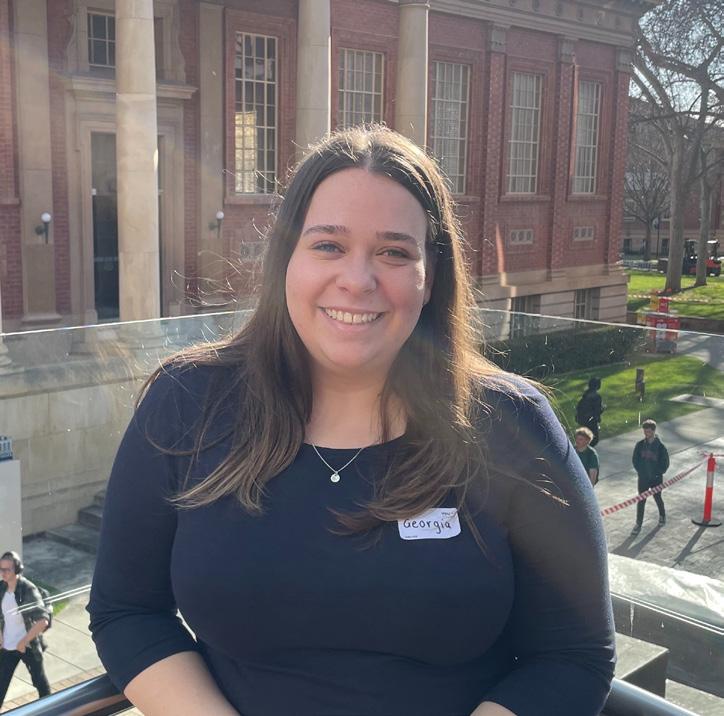
The issues students face will carry over to a new university, they will not simply disappear. We have a unique chance to fix some of our broken systems through this change.
The biggest opportunity here is to do better for students.
I’ve said it before, and I don’t think I’ll ever stop saying itthis university only exists because of you. Without students, there is no university to merge and a university of the future should belong to students.
Georgia Thomas srcpresident@adelaide.edu.au 10
Want to have your say?
Find info about the student elections on pages 61-63.
Editors' Picks
Editors' Picks
Comfort reads
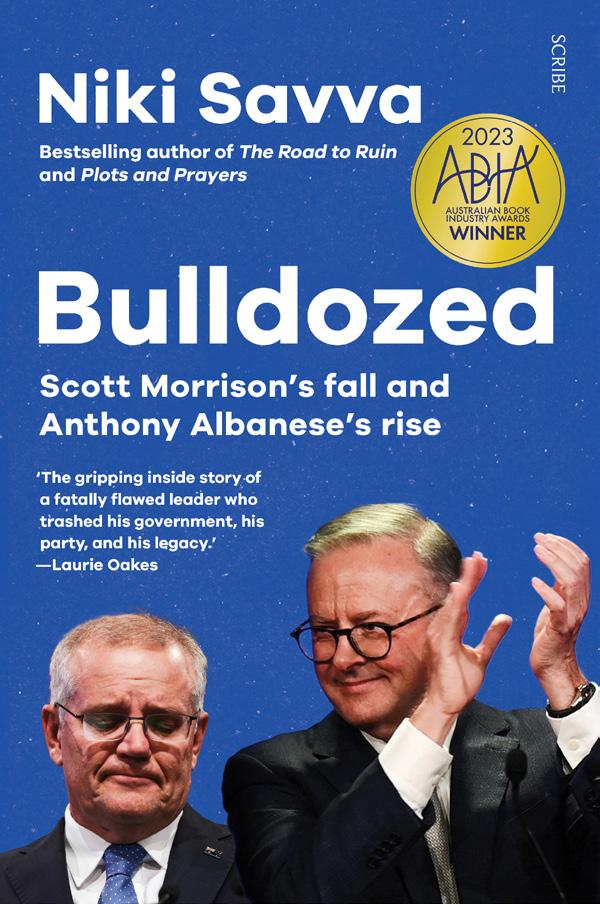
Books my beloved. I’d posit that most of what I read are comfortable escapist reads, though this year I’ve made brave dips into the fantasy genre (you would think fantasy to be escapist, but no, I am a real world girlie). The book I recommend for the perfect balance of comfort, suspension of disbelief about the laws of time travel, and escapism, is One Last Stop by Casey McQuiston. Main character August has mummy issues out the wazoo and has just moved to NYC. She meets a girl called Jane on the subway, but something about Jane isn’t quite right. I will warn you that your desire for escapism must allow for some concerning locations for getting it on… One Last Stop has the most beautiful found family vibes I’ve ever read (which is saying a lot) and McQuiston has a talent for creating deeply lovable characters. This book has such a special place in my heart, so get some Coffee Girl and Subway Girl into you this semester!
I could not be more different than the editor who preceded me. I do not read to escape, as most of what I read relates to my interest in political writing (which is kinda a problem now that I think about it…) and what I could offer up as an escapist read… no. I am not having y’all know about that. Instead, for all of you I offer up Bulldozed. Written by journalist and former senior political advisor Niki Savva, Bulldozed provides an in-depth look at governance and campaigning, all the way from the end of the 2019 election, to the aftermath of 2022. There’s no shortage in scathing critique of the Morrison government, which I imagine is something we can all get behind. I am so relieved that my fellow editors allowed me to recommend a politics book, because this is the last one in a long time that I remember getting absolutely hooked on. I admit that I sometimes struggle to get into a good reading habit, but I lost hours on this book. It was the insight into internal debates and campaigning that got me especially hooked (that stuff is my jam). The day I started reading, I was nervous about something happening the next day, so I guess this does count as an escapist read after all.
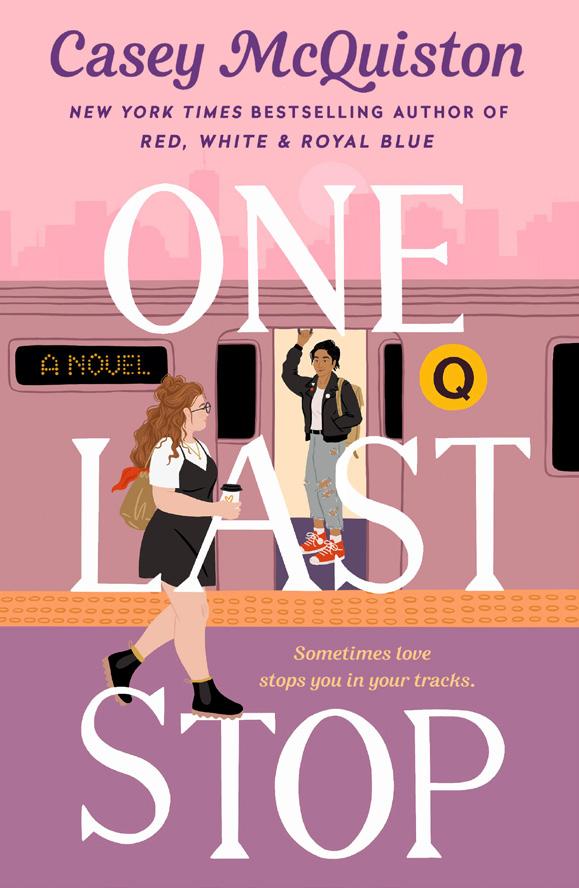
SEB
LOU
12
It sounds messed up, but this novel takes me to a different place whenever I read it. There’s a whimsical element to the book that bleeds into the narration, making you feel in a dream-like state. Combined with the macabre plot, the novel reads more like a fantasy-mystery than a coming of age novel. It’s haunting, it’s brilliant, it’s enigmatic. Eugenides taps into the perverse teen-psyche with the curiosity of the town brotherhood, who are grossly fascinated with the Lisbon sisters. The sisters themselves are aloof and unpinnable — the controversy of the first Lisbon suicide only adds to the mystery. By the middle of the book, you’re a townsperson yourself, morbidly curious about the life of the family and its devolution. Perhaps it’s just my own demons jumping out at this admission, but the writing is so beautiful and matter-of-fact that it’s quite comforting. I’ve never read writings about death that felt so realistic, and I think that’s why the text itself is so otherworldly. The grief of the sisters is somewhat romantic, and not in a ‘death is romantic’ way, but more like a yearning that I can’t quite articulate. This book is probably only comforting and escapist for the mentally ill, so take what I say with that in mind lol.
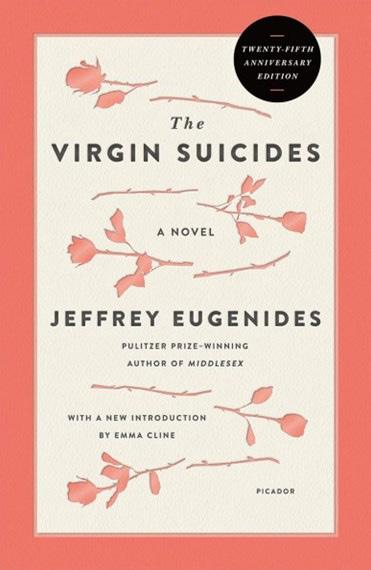
Yo. The fantasy snob in me took far too long to appreciate any other form of story-telling other than novels and television, but now my eyes are open. Unfortunately they are open to the point of addiction and I can’t stop reading manga, especially manwha. Out of the hundreds I have on the go right now (seriously!), the one I have to pick for my escapism read is ‘The Tyrant’s Sister’. Originally written by Aperta and adapted to manwha by Choebab, ‘The Tyrant’s Sister’ has to be one of the funniest reads I’ve had the pleasure of escaping with. The characters’ amazing facial expressions and reactions are brought to life and the chaos of their personalities really benefit from the webcomic form of manwha. I’m a sucker for romance (it fills the emptiness my enduring singledom invites) and the chemistry between the love interests is just too good. I do have to warn you that it is isekai, but that relevance is lost once the main story really gets moving. All in all, I highly recommend it if you’re looking for a super fun and brainless read (the fourth season has just started being released and is available on Tapas!!!!)

Ah, the enduring power of the written word… As we kick off Semester 2, we thought we’d recommend some books to get you through the painful return.
13
Sienna
kathers
blah blah blah blah blah blah blah blah blah blah blah blah blah blah blah blah blah blah blah blah blah blah blah blah blah blah blah blah blah blah blah blah blah blah blah blah blah blah blah blah blah blah blah blah blah blah blah blah blah blah blah blah blah blah blah blah blah blah blah blah blah blah blah blah blah blah blah blah blah blah blah blah blah blah blah blah blah blah blah blah blah blah blah blah blah blah blah blah blah blah blah blah blah blah blah blah blah blah blah blah blah blah blah blah blah blah blah blah blah blah blah blah blah blah blah blah blah blah blah blah blah blah blah blah blah blah blah blah blah blah blah blah blah blah blah blah blah blah blah blah blah blah blah blah blah blah blah blah blah blah blah blah blah blah blah blah blah blah blah blah blah blah blah blah blah blah blah blah blah blah blah blah blah blah blah blah blah blah blah blah blah blah blah blah blah blah blah blah blah blah blah blah blah blah blah blah blah blah blah blah blah blah blah blah blah blah blah blah blah blah blah blah blah blah blah blah blah blah blah blah blah blah blah blah blah blah blah blah blah blah blah blah blah blah blah blah blah blah blah blah blah blah blah blah blah blah blah blah blah blah blah blah blah blah blah blah blah blah blah blah blah blah blah blah blah blah blah blah blah blah blah blah blah blah blah blah blah blah blah blah blah blah blah blah blah blah blah blah blah blah blah blah blah blah blah blah blah blah blah blah blah blah blah blah blah blah blah blah blah blah blah blah blah blah blah blah blah blah blah blah blah blah blah blah blah blah blah blah blah blah blah blah blah blah blah blah blah blah blah blah blah blah blah blah blah blah blah blah blah blah blah blah blah blah blah blah blah blah blah blah blah blah blah blah blah blah blah blah blah blah blah blah blah blah blah blah blah blah blah blah blah blah blah blah blah blah blah blah blah blah blah blah blah blah blah blah blah blah blah blah blah blah blah blah blah blah blah blah blah blah blah blah blah blah blah blah blah blah blah blah blah blah blah blah blah blah blah blah blah blah blah blah blah blah blah blah blah blah blah blah blah blah blah blah blah blah blah blah blah blah blah blah blah blah blah blah blah blah blah blah blah blah blah blah blah blah blah blah blah blah blah blah blah blah blah blah blah blah blah blah blah blah blah blah blah blah blah blah blah blah blah blah blah blah blah blah blah blah blah blah blah blah blah blah blah blah blah blah blah blah blah blah blah blah blah blah blah blah blah blah blah blah blah blah blah blah blah blah blah blah blah blah blah blah blah blah blah blah blah blah blah blah blah blah blah blah blah blah blah blah blah blah blah blah blah blah blah blah blah blah blah blah blah blah blah blah blah blah blah blah blah blah blah blah blah blah blah blah blah blah blah blah blah blah blah blah blah blah blah blah blah blah blah blah blah blah blah blah blah blah blah blah blah blah blah blah blah blah blah blah blah blah blah blah blah blah blah blah blah blah blah blah blah blah blah blah blah blah blah blah blah blah blah blah blah blah blah blah blah blah blah blah blah blah blah blah blah blah blah blah blah blah blah blah blah blah blah blah blah blah blah blah blah blah blah blah blah blah blah blah blah blah blah blah blah blah blah blah blah blah blah blah blah blah blah blah blah blah blah blah blah blah blah blah blah blah blah blah blah blah blah blah blah blah blah blah blah blah blah blah blah blah blah blah blah blah blah blah blah blah blah blah blah blah blah blah blah blah blah blah blah blah blah blah blah blah blah blah blah blah blah blah blah blah blah blah blah blah blah blah blah blah blah blah blah blah blah blah blah blah blah blah blah blah



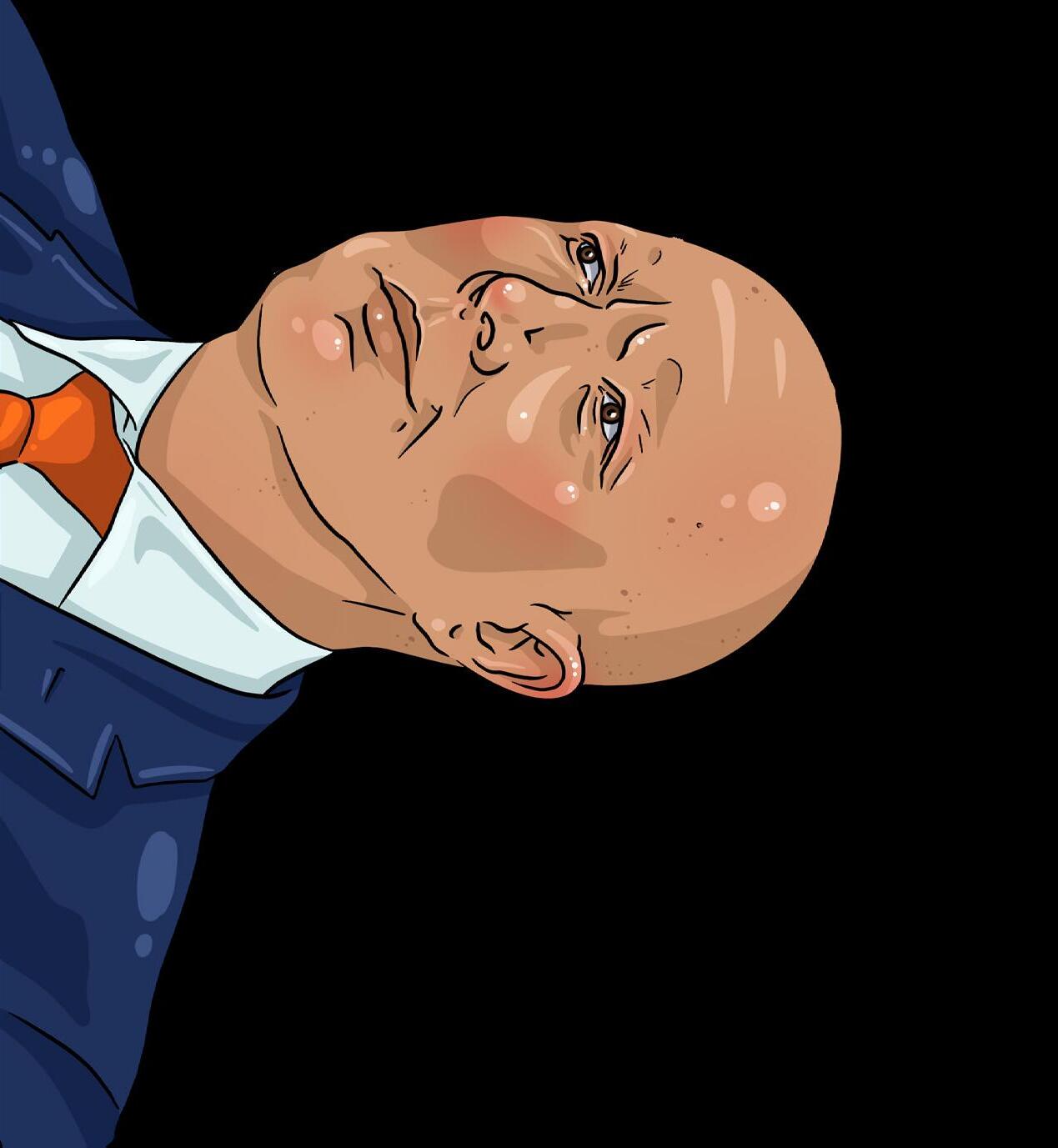

blah blah blah blah blah blah blah blah blah blah blah blah blah blah blah blah blah blah blah blah blah blah blah blah blah blah blah blah blah blah blah blah blah blah blah blah blah blah blah blah

1. If you could travel to any time and any place, when and where would you choose?
2. What is your biggest Semester 1 regret?
3. Best place to go on a rainy day?
VOX POP VOX POP
We ask two UofA students the most pressing questions. If you want to be featured in another issue, email us!
1. I think I’d travel back to 2019, to my old bedroom, and tell Year 12 Grace it’s going to be okay. She is capable, strong, kind and worthy of unconditional love. (Yes I’m a very sentimental human).

2. Not studying on campus more.
3. At home, in bed, wearing my Oodie watching a TV drama series.
Grace.she/her
1. Any place and time (assuming in the past): meet Hypatia, in early 400s AD, or the first production of Shakespeare’s Much Ado About Nothing.

2. My biggest regret for Semester 1 is not getting in to see my psych until well into a mental health situation. Won’t have stopped the Depression, but could have helped me manage better.
3. Best place to go on a rainy day? On a warm day, sitting under a verandah with a glass of wine, and a good book. On a cold day, by a fireplace, with a glass of wine, and a good book.
/
VOX POP M.Public_Policy
B.Media(journ)_B.Arts(psych) Loki.they/them
15
The South Australian government has recently increased penalties for disruptive protests. Do you support the passage of these laws?
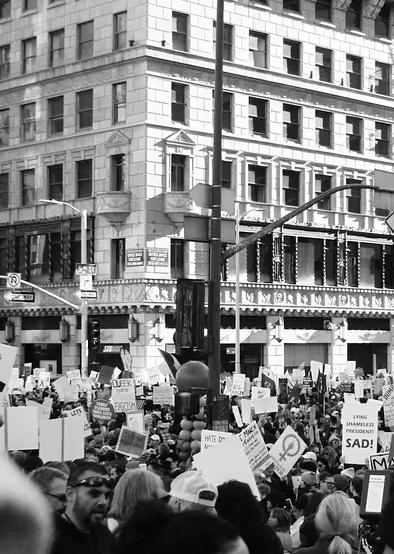
socialist alternative:
Written by Xenon Lane
We emphatically oppose these laws, especially in light of the disastrous cost-of-living crisis and the government’s drive to war with China. Disruptive action expresses our democratic will against the rotten priorities of the state. Through protest we’ve fought for workplace democracy, LGBTI rights, indigenous’ justice, women’s liberation, and the end of wars – and many times we’ve WON.
GREENS CLUB:
Written by Michael Petrilli and Cameron Cook
Greens club in line with the Greens absolutely opposes these authoritarian and draconian laws. It is disgraceful that these amendments are coming from a supposedly pro worker Labor party. These amendments blur the line between what is and what isn’t legal protest. It now shamefully discourages our democratic right to protest by threatening us with imprisonment, essentially making protest a crime.
Liberal club:
Written by Henry Southcott
I don’t support the laws in their current state. As a party we believe in individual freedom and I think it would have been more reasonable if the penalties were only under the circumstances when there is risk to life of either the protestor or bystanders, or any damage or graffiti to property.
labor CLUB:
Written by Steph Madigan
No. Protests are almost always disruptive since they are how we protect our rights when all other avenues fail. The addition of “unintentionally” obstructing a public place broadens the definition to encompass homeless people or people experiencing a mental health crisis. The changes even allows courts to order guilty parties to compensate police for the cost of responding to the incident, which is determined by the Chief of Police. It’s an oppressive reversal of the onus of proof.
Image Licensed under CC0 1.0 We the people. Original public domain image from Wikimedia Commons 1.
16
2.
With HECS indexation jumping to 7.1%, is a moratorium or cancellation of debt a reasonable measure to support graduates?
socialist alternative:
Written by Xenon Lane
Education was once free in Australia and why should it not be again? Labor are spending $384 billion dollars (!!) on nuclear subs, and an almost equal amount on stage 3 tax cuts for the rich. They could, for a tiny fraction of this cost, cancel all future and current student debt.
GREENS CLUB:
Written by Michael Petrilli and Cameron Cook
The HECS indexation of 7.1% is devastating to students that are simply trying to further their education. No one should be punished nor dissuaded from pursuing a better future. In fact, all HECS debt should be wiped and education should be made free.
Liberal CLUB:
Written by Henry Southcott
Historically HECS being tied to the inflation rate has been a good thing with inflation typically being held at around 2-3% and indexation following that, The 7% jump is just due to high inflation which is likely to be maintained for the next few years. I would be in support of fixing indexation to the cash rate which is less volatile than inflation. I would also be in support of the reinstatement of the 10% upfront discount for HECS as it was a shame to see it dropped this year.
labor CLUB:
Written by Steph Madigan
We must halt the increase immediately. Tying loans to inflation means interest rate rises can cause loans to spiral, sometimes in excess of repayments. Graduates who repay their loans are punished, while students who don’t earn above the minimum wage have more lumped on. HECS can depress earnings for decades–in 2022, it took an average eight years to repay a HECS debt in full and up to 40 for Law!–affecting the ability for students to finance a housing loan.
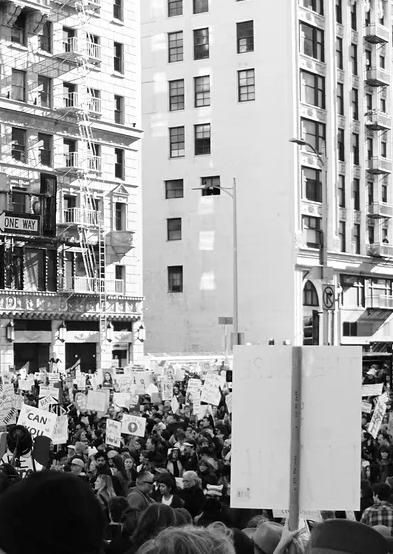
17
What is one thing you would change about the 2023-24 Federal Budget?
socialist alternative:
Written by Xenon Lane
Get rid of the stage 3 tax cuts, worth a jaw-dropping $313.1 billion dollars! That money could address the cost-of-living crisis by:
- building urgently-needed public housing

- increasing wages and welfare
- cancelling student debt
- massively expanding public transport and healthcare infrastructure
GREENS CLUB:
Written by Michael Petrilli and Cameron Cook
In a housing and cost of living crisis this Labor government has chosen the right wing, neo-liberal policy of austerity. They decided that reaching economic surplus is more important than providing secure housing for the millions of Australians facing housing insecurity, they have decided that surplus is more important than lifting the one in six Australians facing poverty, out of poverty.
Liberal CLUB:
Written by Henry Southcott
I would have liked to see something to help the mortgage holders who either are having more trouble meeting their repayments due to the inflation the government spending is causing, and subsequent rate hikes from said inflation. Especially for the home owners who entered a fixed loan at a low rate and at the end of it their repayments are skyrocketing.
labor CLUB:
Written by Steph Madigan
We should boost Youth Allowance by more than $40 a fortnight (which is 13% of this writer’s rent, FYI) and fix the “TBC” on student loan support. Two-thirds of university students live below the poverty line and have to work to the detriment of their schooling. The decision to restrict international students to working a maximum of 48 hours per fortnight should also be reversed, since the cap previously exposed students to wage theft, sexual harassment, and housing insecurity.
3. 18
Diary of a Law School Dropout DisabiliDiT

ContentWarnings:Containsdiscussionsofableismand mental health issues.
Honestly, my brief stint as a law student feels like a fever dream.
I’m in such a different place now from where I was two years ago, that I genuinely forget that when I first started uni, I was enrolled at the oh-so-prestigious Adelaide Law School, back when there was such a thing as the Faculty of the Professions (Faculty of ABLE? I don’t know her).
After a semester at uni, there will no doubt be many of you who are disillusioned with the higher education sector and contemplating whether you made the right decision regarding your post-school pathway. Perhaps your degree is a lot harder or not as interesting as you thought it’d be. May be you’ve realised that your true passions lie elsewhere but are stuck in a course you feel obligated to see through to the end. Or it could be that you’ve got a sneaking suspicion that you’ve gone undiagnosed with a disability, medical condition, or neurodivergence that’s negatively impacting your study and are in desperate need of accommodations.
Trust me, I’ve been there. After crawling my way to the finish line of my first semester (barely), my mental health was absolutely AWFUL. Unbeknownst to me, I was dealing with severe neurodivergent burnout to the point that I struggled to get out of bed for classes most days and became very irritable at the slightest mention of uni. In hindsight, I really should’ve dropped out of law school after Semester 1 but didn’t because I was stubborn AF and wanted to make it work. This turned out to be, as Julia Roberts once said, a BIG MISTAKE (HUGE), as I ended up failing all but one of my Semester 2 courses. Please, I implore you, if you have any inkling at all that your current program isn’t right for you, DROP OUT. Or at the very least, take some time off to reflect before diving in again.
Fresh out of high school after a shit send-off courtesy of Miss Rona, I had noble intentions when I decided to pursue law alongside a media degree: I had a semi-solid vision of myself as a paralegal in the realm of media or family law, or as a legal commentator for a media outlet.
After constantly being told that my long-time career goal of becoming a journalist was unrealistic, I was pushed onto a more lucrative career pathway that utilised my strengths in reading and writing. In Year 11 and 12, I was so dead-set on this logical plan that I went out of my way to take up Legal Studies externally (my school didn’t offer the subject) to acquire the advantageous foundations for study at tertiary level.

In O’Week, I was in for a rude awakening when the commencing cohort was told by a lecturer, “Some of you will do very well in law school and some of you will do not-so-well in law school”. Oh boy, were they right.
As a first-gen uni student, I was already confused by the enrolment process but creating a timetable for my law courses made it doubly so. I made the rational assumption that lectures would be scheduled before seminars in any given week. However, I discovered that my Foundations of Law seminar was held before the weekly lecture (um what?) and that Tort Law seminars didn’t start until Week 4, giving me under 2 months to prepare for an exam worth up to 75% of my final grade
Notwithstanding the hella expensive textbooks and sheer number of dense required readings (yes, there were actual personal consequences for being unprepared), the Law School environment thoroughly pissed me off for its inaccessibility to undiagnosed neurodivergent students in the following ways:
5% late penalty policy per 24 hours after the deadline, with submission times differing between courses, as opposed to 2% in Arts at standard end-of-week 11.59pm
Greater emphasis on group work (ugh) Vague legal jargon and approaches to problem-solving (fucking IRAC)
2 hour-long lectures (ain’t nobody got time for that)
Quick turnaround time for picking up content and completing assessments
Insistence on in-person attendance at lectures and seminars
Limitation to dry, compulsory modules in firstyear
Not to mention I kept hearing from the academic staff, “You’re all here because you want to be lawyers!” - stfu you don’t know me.
Although I was ineligible for an Access Plan back then, I would still struggle in this environment even with the accommodations I have now. The Law School actually needs to change the way they teach their content if they want to achieve true accessibility and inclusion.
20
If you spent this semester in a constant state of disassociation (no thoughts, head empty), take this as a major warning sign you should stop and change what you’re studying.
It’s okay to drop out! There is no shame in transferring degrees (or saying bye-bye to uni altogether) even if it means switching to something less prestigious, requiring a lower ATAR/ selection rank, and leading to a less clear-cut career pathway.

When I made the decision to swap Law for Arts, I realised I had more freedom to pursue my passions and variety of interests through electives. The main takeaway from my disastrous 2nd semester was the importance of playing to your strengths and chasing after what truly energises and motivates you. It’s a lot easier to push through the obstacles when you’re actually able to see the value of your degree to your personal and professional development and see real-world impacts.
Work with your brain, not against it!
If you’re considering an internal transfer, visit: https://www.adelaide.edu.au/student/internal-transfers#important-information
The closing date for Semester 2 applications is Monday, 21st July at 5pm.
Charlotte Whincup
DisabiliDiT 21
RBA Plays “Recession Roulette”: WhatYouNeedtoKnow

Grace Harkins
The Reserve Bank of Australia (RBA) is Australia’s central bank and is independent from, but also accountable to, the current government. In early June, the RBA surprised most economists, borrowers, and financial markets again by raising the cash rate by 0.25 of a percentage point, pushing it to 4.1%.
This decision caught many off guard, as most experts anticipated that the rate would remain stable for longer than just one month. The most recent increase in June 2023 marked the 12th increase since April 2022. Before the April 2022 increase, rates had reached a record-low level of 0.1%.
But what is the cash rate, and why does it matter?
Economist Peter Martin explains the cash rate as “the rate that banks are paid for leaving money with each other, or with the Reserve Bank, overnight.” This is one of the only tools the RBA has to influence inflation. The cash rate strongly influences the interest rate from your banks; while banks are not required to follow the RBA, they frequently adjust their interest rates in response to the RBA’s cash rate shifts.
Banks pay higher borrowing costs when the RBA raises the cash rate, and they pass these costs along to their customers in the form of increased interest rates on loans and mortgages. Borrowing is cheaper when the cash rate is low, encouraging investment and spending. On the flipside, a high cash rate makes borrowing more expensive and can therefore hinder the economy. The Australian Consumer Price Index, which the RBA uses as a measure for inflation, is slowing down but is still uncomfortably high above 7%, well beyond the target range of 2-3%.
The RBA has signalled that “further tightening” might be necessary. This would further increase stress on households already struggling with rising cost-of-living pressures, such as the higher cost of groceries, fuel, and energy.
22
What does this mean for students?
The rate increase will result in larger monthly payments for those who already have personal loans or mortgages, making it more difficult for them to stretch their student budgets. This is the area where the RBAs decision will hurt the most, with some mortgage monthly repayments increasing by more than $1000. Anneke Thompson, Chief Economist for CreditorWatch, noted that borrowers who had obtained a home loan during the last two years would experience the greatest pressure.
Current conditions may discourage students from borrowing money in the future, further limiting their access to it when they need it. Many people have begun refinancing their mortgages in order to manage existing repayments. Borrowers continue to find good deals despite cash and interest rate increases. A rivalry amongst the banks (especially the Big 4) and a desire to remain competitive makes banks more willing to be flexible, in order to keep customers. You might find that your bank becomes suddenly more accommodating if you walk in and tell them you’re considering switching your loan.
But there is good news for savers! Savings account interest rates have started to rise, which is fantastic for customers. Banks used to be slow to raise savings rates, but now they are doing so in response to customer demand for better rates, and the rising cost of bank borrowing. However, it’s important to be vigilant and regularly check your savings account rates. Some banks may offer high interest rates for a few months, but then later lower them.
Even though the RBA’s decision to raise the cash rate may have come as a surprise and unwanted challenge for Australians already under financial stress, the medium-term forecast is promising. The RBA’s decision was made in the context of broader economic considerations, and while it might pose short term pain could result in long-term economic stability
The response from students is expected to be and has been mixed, University students should be aware of the potential effects on their financial situation. Even though the rate increase might make spending and repayments harders, it might also encourage saving. In light of the economy, my advice to you is to proactively look into ways to control your spending and look at ways to save money to be ready for any future adjustments and the changes to our economy.
Econ DIT
Will this be the last increase?
After the May increase, economists are divided, particularly given that so many of them predicted the May increase incorrectly. Brendan Rynne, chief economist at KPMG, predicts that an additional increase may be required to bring inflation under control. However, Pradeep Philip, head of Deloitte Access Economics, described the RBAs decisions as “playing recession roulette.” Commonwealth Bank chief economist Gareth Aird, who was one of the few expert economists to predict a rate rise in May, said he expected no further increases from the RBA, however, we now know it was increased again in June. Some forecasts predict two to three more increases.
As you read this, the RBA will have made another decision regarding the cash rate. Whether they have increased it again or decided to keep it steady, economists and the public alike will be watching closely to see what impact it will have on the economy, inflation, and ultimately their own financial circumstances. Will the RBA roll the dice again? Only time will tell.
23
u stainabiliDIT
As more and more people learn the facts about the climate crisis, there is increasing consensus that protecting the planet requires more than individual action. As wonderful as it is to see well-meaning people recycle and reuse items, and as plausible the argument that one individual action when done a thousand times over can be immensely effective in combating environmental issues is, it is also true that businesses, corporations, and institutions have to do their part to create a better future. A large part of this sentiment stems from the fact that the actions of corporations have an extensive impact on the environment, far more than those of the average individual do.
SEnter sustainable finance. While it might not seem terribly different than ordinary investing, it takes environmental, social, and governance (ESG) factors into consideration, which makes all the difference. By integrating environmental responsibility, social inclusion, and sound governance, these standards have significant potential to propel finance into a force for good.
Of course, there is no magical solution to the many environmental crises we see around us every day. And while companies that adopt sustainable finance outperform others in various metrics, the impact of all this on the environment itself is not as clear. For instance, some experts worry that sustainable finance simply distracts from the role that governments should be playing in combatting climate change, and undermines the importance of regulatory intervention in environmental issues.
Sustainable finance might not be the perfect cure to the climate crisis but it is a practical way for companies and institutions to be a part of the solution. And of course the alternative—supporting investments that are harmful to the environment—is far worse. So, what does this have to do with you?

At the Adelaide University Sustainability Association, we are committed to harnessing the potential of finance as part of our mission to defend the environment through our Sustainable Finance Programme (SFP), our campaign to harness our University community’s operations for positive change. You can follow us to stay updated on our progress and how you can play a part in making the world, literally, a better place.
The Adelaide Sustainability Association (ASA) at the University of Adelaide is a social group interested in learning more about sustainability and getting to know like-minded students. You can learn more about the ASA & chat about our Sustainabili-dit articles via our social media channels: @ Adelaide Sustainability Association on Facebook @instainable on Instagram.
24
What’s sustainable finance?
 Chidiuso Ajaero, Secretary and SFP Coordinator
Chidiuso Ajaero, Secretary and SFP Coordinator
An
ASA Snapshot:
25 S u TIDilibaniats
That time Pepsi owned Soviet warships
What brought together the soft drink Pepsi, war ships and the Soviet Union? Capitalism, of course!
1972 brought with it the birth of ABBA, Pong, Dwayne ‘the Rock’ Johnson, and an exclusive distribution deal between Pepsi and the Soviet Union. Back in 1959, the opportunistic head of Pepsi’s international division, Donald M. Kendall, had a bold plan. Against the wishes of Pepsi executives, he made his way to Moscow to sponsor a booth at the American National Exhibition. This was an interesting exercise in diplomacy between the Cold War superpowers; the USSR had held a reciprocal exhibition in New York.
Vice-President Richard Nixon (absolutely nothing down the line for him...) was on hand to tour Soviet leader Nikita Khrushchev through the wonders of America, and right to the Pepsi booth. Kendall had of course struck a deal with Nixon ‘to get a Pepsi in Khrushchev’s hand”. Sure enough, Nixon delivered (as he would continue to for the rest of his political career with absolutely no scandals). Equally so did Cold War tensions. Kendall suggested to Khrushchev that one of the batches of Pepsi was made with Soviet water, and the other with water from New York. Naturally, Khrushchev declared the better Pepsi to be Soviet.
The image of Khrushchev, cup of Pepsi in hand, spread like wildfire, and Kendall was on the fast track to make CEO by 1963. But Cold War tensions only got tenser, and hopes of a Pepsi expansion were put on hold.
Kendall held on to the idea though, the Soviet Union forever on his mind. But come the Nixon presidency (which ended very normally), peace talks were underway again, and a 1972 international business conference was underway.
Kendall did what Kendall did best, a funky little stunt for the Soviets. He snuck a Pepsi can-shaped radio through conference security and presented it to Soviet Chief Executive Alexei Kosygin. Kosygin was thrilled.
With that, a historic and exclusive deal was signed. Pepsi would have exclusive distribution rights within the Soviet Union, blocking Coca-Cola from entering any agreements until 1985. Naturally, Soviet Pepsi would be bottled within the Soviet Union, but Pepsi has solidified itself as the first product of Capitalism, and an American one no less, to be distributed behind the Iron Curtain.
History Corner: 26
But how was the Soviet Union to pay for their new soft drinks when the ruble, with a value determined entirely at the will of the Soviet government, was worth nothing internationally? Barter of course.
Pepsi entered the vodka industry with an exclusive trade deal: cola syrup for the Soviets, and Stolichnaya vodka for Pepsi to distribute within the United States. For several years, Americans enjoyed authentic Russian vodka, while Soviets enjoyed approximately one billion servings of Pepsi a year.
Now for the fun part, how the hell did a cozy drink exchange lead to Pepsi owning warships? Soviets liked Pepsi more than the US had a demand for vodka. So an even more historic deal was signed in 1989, 17 submarines and three warships in exchange for a doubling of Pepsi manufacturing plants in the Soviet Union. Regrettably, Pepsi didn’t attempt to destroy Coca-Cola with their new armada, but instead sold the ships for scrap. This occurred again in 1990, when Pepsi took ownership of new Soviet oil tankers, and either sold or leased them for use. Kendall apparently stated to a Bush Senior national security advisor that Pepsi were ‘disarming the Soviet Union faster than you are’.
But not all can end well for Pepsi, the Soviet Union collapsed in 1991, and took with it Pepsi’s relationship building efforts. Coca-Cola entered a newly free market in the Eastern bloc, and naturally trumped Pepsi sales. The Pepsi/Soviet empire was no more.
Kendall’s expansion of capitalism to the Soviet Union however, earned him an Order of Friendship medal from Russian President Vladimir Putin in 2004.
Pepsi may have lost to Coca-Cola again, but they’ll forever be the first to bring a capitalistic product behind the Iron Curtain. And Coca-Cola have certainly never owned a naval fleet.
References
Ewbank, A 2018, ‘When the Soviet Union Paid Pepsi in Warships’, Atlas Obscura, 12 January, <https://www. atlasobscura.com/articles/soviet-union-pepsi-ships>.
Stenberg, M 2020, ‘How the CEO of Pepsi, by bartering battleships and vodka, negotiated Cold War diplomacy and brought his soda to the Soviet Union’, Insider, 12 November, <https://www.businessinsider.com/ceo-of-pepsi- brought-soda-to-the-soviet-union-2020-11>.

Louise Jackson 27
Mature Student Association
Club Spotlight
1.
Hey club, tell us about yourself!
Hi, Friends! We are the Mature Student Association (MSA). We provide social and academic support for mature students. Mature students are University of Adelaide students who are 23 years and older; or students who did not come to university directly from high school.
The MSA hosts casual meet-ups throughout the semester (weeks 4, 8 and 12) at various bars across Adelaide. We also host regular morning teas in the MSA Lounge; family events throughout the mid-semester break and restaurant outings throughout the mid year break. Currently, we are developing more academic support programs for mature students.
3.
Why is YOUR club important?
While there has been some form of mature student representative body on campus since the University of Adelaide was founded, our current iteration of the Mature Student Association (established in 2004) turns 20 next year!
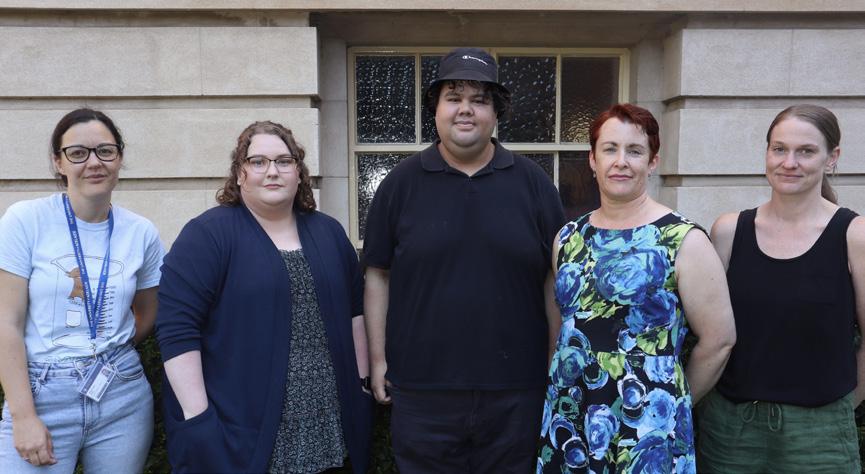
5.
How can students get into contact with you?
What kind of activities do you hold?
2.
The MSA is a demographic representative body. That means along with offering mature students social and academic support, we are also an advocatorial body for mature students. Mature students have responsibilities and unique experiences that make university challenging. The MSA aims to be a vocal entity supporting and affirming these challenges.
What’s a FUN FACT ABOUT YOUR CLUB?
4.
If you are 23 years and older, or have not come to University straight out of high school (think gap years, entering the workforce, TAFE, UPP) then send us an email at maturestudents@clubs. youx.org.au or visit www.linktr.ee/adelaidemsa. You can also find us in the Temporary MSA Lounge on the ground floor of the Hartley Building (14 Kintore Avenue).
MSA
28
The Gig Guide
Classical
First Impressions
Australian String Quartet
18/8/2023 @ 12:30pm
Elder Hall, Adelaide
$14 general admission, 25% savings with a Gold Pass subscription
Tickets available from Elder Conservatorium of Music Concert Series website, Lunchtime
Concert Season Two
Eroica
Elder Conservatorium Symphony Orchestra
25/8/2023 @ 12:30pm
Elder Hall, Adelaide
$14 general admission, 25% savings with a Gold Pass subscription
Tickets available from Elder Conservatorium of Music Concert Series website, Lunchtime Concert Season Two
dance
Ministry of Sound: Testament
The Bloody Beetroots (IT), Digitalism (GER), Minx, Loot & Plunder, Dancespace, Paul
Marshman, Bollocks DJ
11/8/2023 @ 8pm
Unibar Adelaide, Adelaide
$89.00 from Moshtix
Tyne-James Organ ‘Blue Tour’
Tyne-James Organ ‘Blue Tour’ Death by Denim
4/8/2023 @ 8pm
Unibar Adelaide, Adelaide
$38.33/$43.43 from Moshtix
Alt Rock Festival

First Circle Fest
Keyan, Lune (VIC), Heartline, The Motion Below (VIC), Kin, Sines
12/8/2023 @ 4.30pm
Unibar Adelaide, Adelaide
$43.43 from Moshtix
Romanticism
From Echoes
Simon Cobcroft, Kristian Chong
11/8/2023 @ 12:30pm
Elder Hall, Adelaide
$14 general admission, 25% savings with a Gold Pass subscription
Tickets available from Elder Conservatorium of Music Concert Series website, Lunchtime
Concert Season Two
If you’re a student of UofA and have an upcoming gig in May, please email us at onditmag@gmail.com and we’ll include it in our gig guide!
29
Jesus Christ, Atheism and Domestic Violence (What!?!)
Peter Jackson
Before we get into the heavy stuff, I should provide a warning: if domestic violence is a trigger for you, proceed with caution. I should also provide some context:
I spent 13 years at a Catholic school and attended church every Sunday for several years despite the fact that religion never really worked for me. Over that period, I had plenty of time to develop educated opinions on Christian teachings, values and literature. I do not believe in Christianity, or any religion for that matter. No higher powers hold a place of value in my mind. However, if you don’t look at the weird shit too deeply or take it all at face value, it provides a pretty solid foundation for how you should treat people. Also, this piece is mainly aimed at young men, but everyone else stick around to hold us accountable.
For many people, especially young men, domestic violence (DV) can be an uncomfortable topic. However, as uncomfortable a topic it is, much of this violence is perpetrated by men, against women. Sad, but true. 1 in 3 Australian women will experience physical or sexual violence in their lifetime, regardless of race or class and each week a woman is killed because of DV. None of these women provoke or deserve to be abused. Women should not have to live in fear of abuse. We cannot truly understand the toll DV takes on a life until we have seen or experienced it firsthand. The stories are harrowing but it is difficult for words to convey such experiences in their entirety.
It is important to recognise that women are not the only victims of DV. But as men, the statistics are stacked against us. Stating that men are also victims does not qualify as an excuse; DV is an inherently inexcusable act. Just because there are also male victims of DV doesn’t mean we don’t have to do anything. Change is up to us. It’s the responsibility of each and every person reading this to stand up and refuse to be silent, to refuse to perpetuate this issue. There is no such thing as an innocent bystander. If you are a witness, you are involved, so I urge you to choose to be active - it could change lives.
Something that is not talked about enough is how DV affects the family of those involved. The children of a victim are also affected even if they do not directly receive abuse.
DV is like a scar on the lives of those around it, it can be hidden but can never heal and it will carry into all parts of life. People in these circumstances are often dependent on their abuser for shelter and/ or finances. DV is also a prominent cause of homelessness and victims often have nowhere to go where they are safe or understood leaving parents and families on the street.
In the Beatitudes, Jesus states that it is the people who are righteous, the peacemakers who long for justice and choose not to solve their problems with violence who are blessed. Those are the people we must strive to be. We must be merciful souls, men brave enough to create a society where people of any gender, race and class can live safely in our world. A world where we are confident our friends and family are safe in their communities and their homes.
The Bible is a model, detailing how we should treat not just women but everyone. Jesus’ attitude to morality and his position as a conscientious objector was seen as radical by the community of his time. His beliefs aimed to challenge the culture of his day, greatly shocking many who encountered him. He valued love, kindness, mercy and gentleness above all.
As men who are immersed in the diverse society that is university, we must recognise that a major step in curbing this epidemic is our own self-reflection. We must recognise that what it means to be a man is not exclusively how strong and independent we are but how respectful, gentle and understanding we can and need to be.
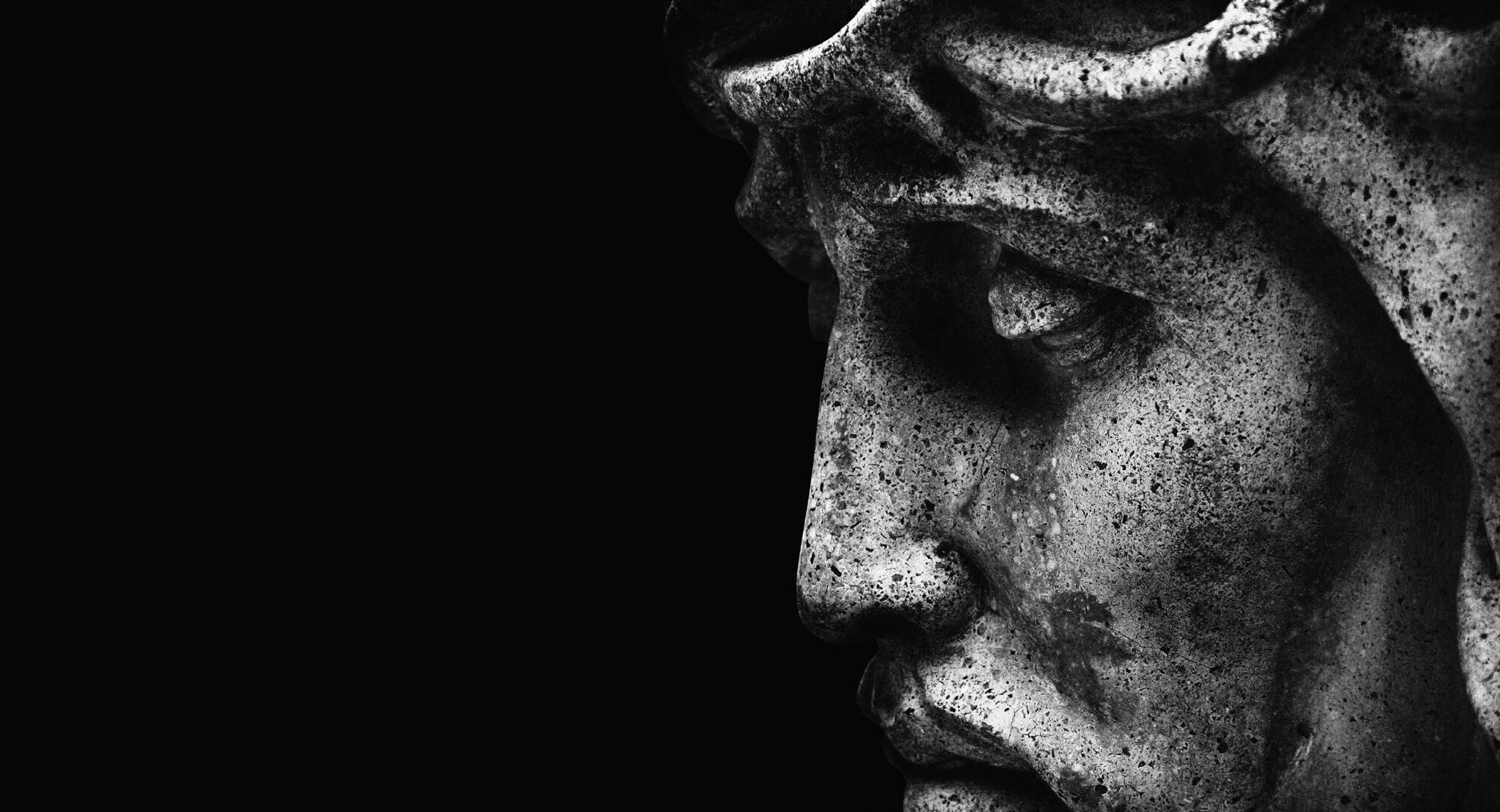
31
The New Zealand Election
Back again to write about another election, this time the one in New Zealand; our neighbours across the Tasman will be heading to the polls in October to decide their government. Having scraped by in 2017, and romped home in 2020, the incumbent Labour government is seeking a third term in power. They’re doing so under a different leader. Citing burnout, former PM Jacinda Ardern unexpectedly resigned earlier this year. This left Chris Hipkins, her leader of the House (amongst other portfolios), in charge of Labour, and the country. Labour won a historic outright majority in 2020 - something no party had achieved since the introduction of mixed-member proportional representation (MMP) at the 1996 election, and a feat Labour has an almost zero chance of repeating in 2023.
Who are the players, and what are they promising?
As the party currently in power, Labour’s campaign is geared more towards maintaining the status quo and promoting its economic credentials. Great strides were made regarding progressive social policy under Ardern — but as the economy sours and recession hits, Labour under Hipkins has sought to stress its commitment to ‘bread and butter issues’. A slew of progressive policies, including strengthening of hate-speech laws, and contentious water reform, were quickly tossed aside when he assumed the leadership, and the 2023 Budget was heavily geared towards cost-of-living aid, and ‘fiscal sustainability’. Labour’s overall campaign isn’t as chipper under ‘Chippy’ (as Hipkins is often called) as it was under Ardern, and understandably so. With Kiwis struggling from cost-of-living crunches, positivity and bold policy proposals won’t do. Labour’s best hope is to convince the public that they’d be less unhappy with Labour than the opposition.
After a devastating result in 2020, the National Party (imagine a combination of the Australian Liberal and National parties) are seeking to regain power. Like Labour, they’re also running under a new leader. Former Air New Zealand CEO, and freshman MP Christopher Luxon was elevated to the leadership in 2021 after a revolving door of leaders failed to take down Ardern. A successful CEO seemed the perfect foil to an idealist reformer, but this momentum has stalled since Hipkins, a pragmatic moderate, took the top job]. Where once National was at or near 40% of the vote, the polling lead now swaps between them and Labour. While Luxon seemed their secret weapon throughout 2022, where the party’s polling soared, he now seems their greatest weakness. Luxon is diabolically unpopular, at least when compared against Hipkins - only 19% preferred him as Prime Minister in a recent poll. Still, with high inflation and a generally lousy economy, National stands a good chance at winning. But that win is certainly a lot less likely than it was.
National is running on a traditional conservative economic platform - addressing the cost-ofliving crisis through cutting taxes and reducing expenditure. Law and order comprises another key policy pillar; in response to rising crime, National are promising reforms such as increased penalties for youth offenders, and increased police powers. Other policies include walking back housing density requirements, to instead prioritise greenfield development (building outside urban areas), and weakening the country’s emissions trading scheme.
Sebastian Andrew
Also on the right is ACT New Zealand, a right-wing libertarian party. Their vote and parliamentary representation soared in 2020 and shows no signs of slowing down. ACT is almost guaranteed to be the third-largest party after the election. Under MMP (more on that in a bit), ACT’s support will be crucial to a National government. They have promised to flex their power, criticising National governments of the past for campaigning from the right but governing from the left. ACT proposes deep cuts to ministries, overturning firearm laws, and a national referendum on the Treaty of Waitangi (New Zealand’s founding document, and an (albeit one-sided and often ignored) compromise and agreement of rights between the British Crown and North Island Māori chiefs).

There is growth on the left; the Greens are seeing their support climb amongst younger voters, and are fighting hard to snatch Labour electorates in Wellington and Auckland. Although Labour had the numbers to govern alone, they formed a formal co-operation agreement with the Greens following the 2020 election. This time, their support will be crucial if Labour wins government. No surprise - the Greens are running on a platform of addressing climate change, tackling inequality, and increasing access to housing. Various tax and income policies have also been proposed: a minimum income guarantee, and tax cuts for earners under $125,000, to be funded by increased taxes on assets over $2 million.

23
Te Pāti Māori/the Māori Party stand a chance at being the crucial piece in a left-wing coalition, should Labour and the Greens fall just short of the necessary 61 seats. They’re promising to leverage their power should both left and right coalitions fall short, but in reality, there is no conceivable way they would work with National – who plan to abolish bodies such as the Māori Health Authority. Te Pāti Māori broadly campaign on measures to improve the lives of Māori; such as reducing gaps in healthcare access, standard of living, education, in addition to other progressive policies such as a wealth tax.
New Zealand’s electoral system
Minor parties are able to wield so much power due to NZ’s electoral system, mixed-member proportional representation. Under MMP, 67 members of Parliament are elected from single-member electorates, using first-past-the-post. The remaining members are elected from nationwide party lists. Voters essentially get two votes – an ‘electorate’ vote, and a ‘party’ vote. Parties must win 5% of the vote to get members elected off the list, but can surpass this and gain representation with a lower vote share if they also win an electorate. Since its introduction in 1996, this system has provided greater representation to New Zealand’s minor parties and has forced the majors to win over their support in order to govern.
Final thoughts
Three months out, what should have been a slam-dunk election is very much up in the air. If National is to win, it will need to restrain its right-wing impulses and accept that some voters are better left to ACT or further-right parties, lest they risk alienating an economically pained but otherwise socially liberal centre. If Labour is to retain government, it needs to announce some policy poste-haste. National, ACT, and the Greens have been filling a policy void when coverage about Labour seems focused on various scandals. A two-term government seeking a third needs to give the public a reason to support it, and ‘the opposition is bad’ may not be enough. This election will certainly be one to watch…
34
Not going to lie but as I write this review, I am 100% overwhelmed. ‘Whelmed’ is the new Adelaide University podcast on uni life and navigating adulthood, presented by YouX and created and hosted by students Bhavya, Belle, and Bhuvi. One thing that immediately becomes apparent with this podcast is that these close friends from high school have great chemistry with each other and are not afraid to recount embarrassing pasts or drop hints for students to succeed in their uni careers.
Their first episode worked well for an intro - the listener learnt about their pasts, a bit about their personal and uni lives, and the fact that at least two hosts are currently overwhelmed. I particularly enjoyed their discussions on the expectations they had before entering first year on what their uni experience would be like and the struggles they face as they transition into adulthood.
Some of their discussions touched on COVID – which they apologised for – but it’s okay, COVID has had a huge effect on all of our lives, it would be difficult to avoid it at all.
Review

They introduced topics such as making friends at uni and navigating the already established cliques. As for advice on turning classmates into friends outside of uni, my recommendation would be to invite them out after class for a drink; a coffee; quiz night - something outside the classroom to normalise the relationship.
The tips they had for students, such as ‘something is better than nothing’, as well as the ever important hydration reminder (seriously, I appreciate this as I forget to drink water all the time) were fantastic.
The segment where they talk to students needs tightening and a bit more professionalism - take a deep breath and wait for the interviewee’s full response before jumping in, and try keeping their answers short and concise. Another issue was that the main segment seemed to digress a bit at times with a lot of semi-related segues from the introduced topic.
All up, ‘Whelmed’ is a great listen that is full of relatable content for those starting uni this year, as well as some golden nuggets that veteran students will appreciate. It will be interesting to see how their relationships and attitudes evolve over the year, and I’m looking forward to hearing more UofA students’ opinions and future Whelmed episodes by the 3 B’s of a peapod, Bhavya, Belle, and Bhuvi.
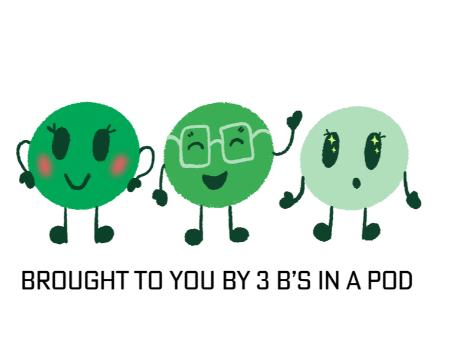

KathersAnderson
Scan now. Stay Whelmed! 35
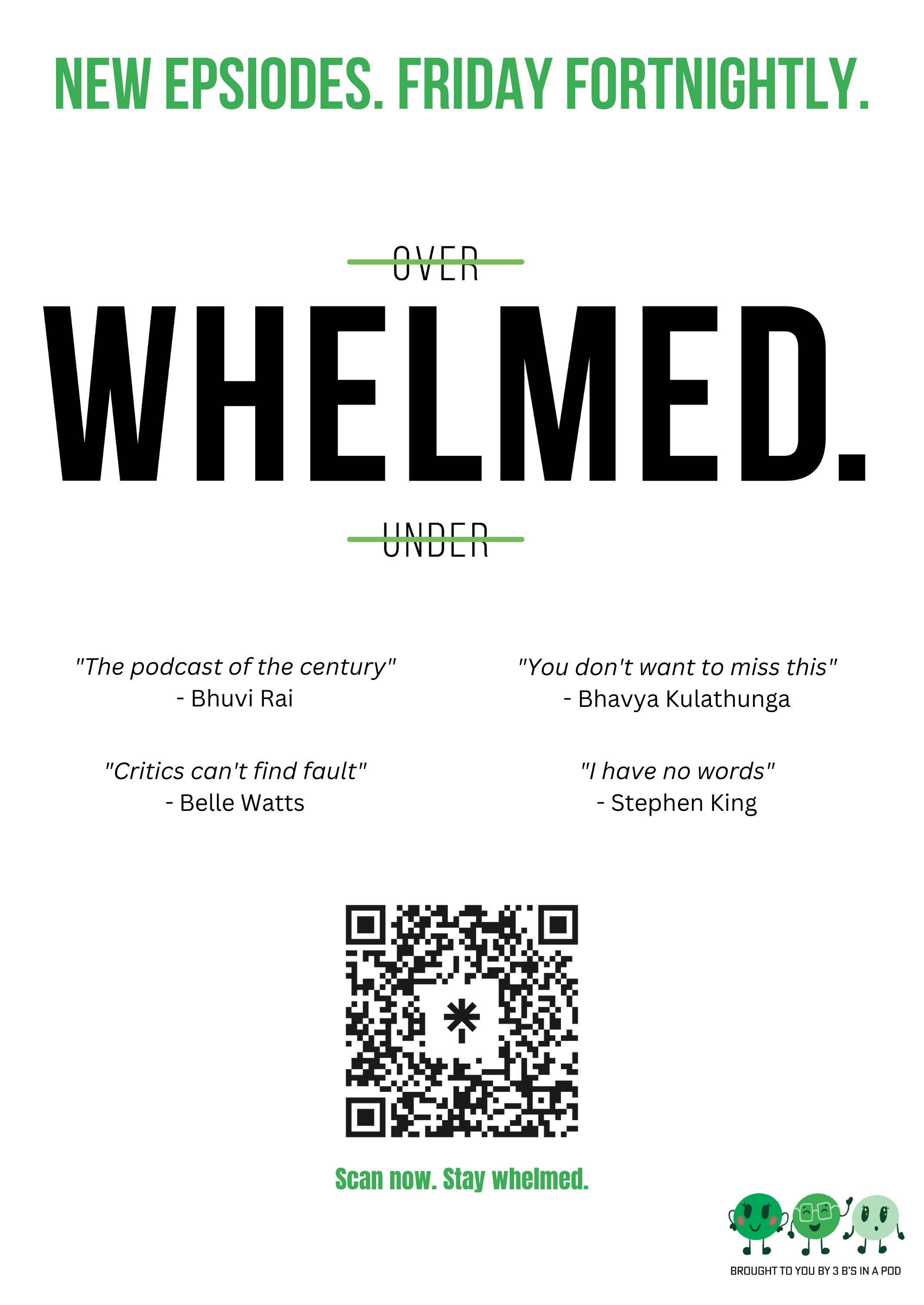


Make new friends at our social catch-ups, meet people from different organisations, and acquire real-world experience while working for positive change. Visit youx.org.au/volunteer to get registered and get involved. youx.org.au/volunteer
OOP.


The Akhapost Conspiracy Chapter 4

Suspiciously, Random!
JackHutchins&EmilyMiller(editor)
The second sun gleamed its midday rays through the brightly stained windows, but did nothing to raise Barry’s mood. Alone in the mess hall, he poked his cucumber sandwich. It snarled menacingly in return.
His gaze strayed over to the younger students on the academy lawns, playing a game of thunder-ball with not a care in the world. Barry sighed, slightly jealous. It had been six months since he’d been abducted - sorry, ‘picked up’ - from home and taken into the magical kingdom of Akhane.
After the first few weeks of bickering with his scientific convictions, Barry gave in and tried learning some magic. He’d spent hours examining course notes on his iScroll Touch and listened to the tips Random would spontaneously provide. Nothing worked.
Barry had barely managed to pass first semester exams, mainly by cheating his way through with science. Who hasn’t used content from previous courses to boost their skill in a new course? Regardless, his results seemed to appease Hathor somewhat.
Oneforbidden thought echoed in Barry’s mind late at night. If Hathor decided my magical proficiency was inadequate to defeat Akhapost, would I be sent back home, or would I be stuck here forever? He worried he already knew the answer. Either way, Barry needed to come up with something soon. Some sort of plan.

Random suddenly nudged his way besides Barry, shoving a limp cucumber sandwich into his mouth.
“Heya Barry. You do know that a tad of that second-sun sunshine is good for the skin, right?” Random questioned between crunching mouthfuls.
“Not when it comes with the risk of being hit by a thunder-ball.” Barry quipped, hoping to cut the conversation all together.
“You know, people wouldn’t bother you if you didn’t talk back.”
Barry went to retort but Random had vanished. He sighed. Random unfortunately had a point.
Over the semester, Barry had run into somewhat of a bully problem. He called it interplanetary racism.
Barry shook his head. Enough negativity. At least the day was almost over, and after lunch was his favourite class. The only one that didn’t involve magic: History.
Realising he had forgotten his iScroll on his bed, Barry doubled back to the dormitories. He paused when he reached the room; a peculiar note was floating beside the door.
Practiced magic, it read. Barry rolled his eyes, knowing full-well that was against the rules. He kept reading. Will clean up later. -Random.

“Seriously?” Barry groaned aloud, but nevertheless reached for the door,jerking back as his hand made contact with the handle. It was scalding hot! He glanced back at the note and noticed additional text.
No really. Come back later.
Furious, Barry stormed off to class, hoping to see Random there. He burst into the room 10 minutes late, the teacher glaring at him, and Barry’s eyes drifted over to Random’s suspiciously unoccupied seat. Aware of the eyes on him, Barry awkwardly slunk over to his desk. After a moment of glaring, the teacher continued apparently from where she’d been interrupted.
“In today’s class we are learning about the grim, but grotesquely fascinating topic of the sacrificial ceremony to Akhapost.” Barry couldn’t help but slump in his seat.
There goes the hope of learning anything new, he thought as the hours of briefings with Hathor in weeks prior flashed to the forefront of his mind. Just as he prepared to zone out, the next words from the teacher caught his attention.
“… as a condition of peace to appease the monster, during the setting of the second sun, a child sacrifice must be made.”
Barry’s ears pricked at new information - something Hathor hadn’t disclosed. The teacher went on.
“However, in recent times, an unusual circumstance has occurred where children have volunteered themselves as sacrifices. It’s such a noble act for such a young age and all the more uncommon given the selfishness of youth.”
Barry’s mind boggled. Hathor had never allowed him to attend the ceremony, though Random had gone to every one in the time Barry had known him. He glanced at Random’s empty seat. The teacher continued, further expanding on the strange theories of why children seemed to appease Akhapost the most, and what the likely ramifications would be if the sacrifice requirements were not met.
The lesson ended on a bitter note, as the teacher described how all conventional methods of killing the creature had failed catastrophically, provoking Akhapost to retaliate and cause more bloodshed.
After that disheartening exposition, and a small talk after class about matters of organisation and timeliness, Barry found himself walking back to the dormitories unusually exhausted. He hoped to find the door unlocked and the room in some degree of order, occupied with a very apologetic figure of Random.
Two of these hopes came true.
“Afternoon Barry. Hope the room access didn’t cause a problem. I got too curious about a particular piece of magic for my own good.” Random chuckled nervously, kicking something under the lower bunk bed as he did so.
Ignoring Random, Barry took in the small dormitory, taken aback by its cleanliness. “I thought you said –” Barry started, but Random had already vanished. Barry shook his head, before stealing a glance under the bunk bed to see what Random had just kicked under it. He found nothing, so went about his afternoon.
But there was something about it niggling in the corner of his mind, so when he needed the bathroom in the middle of the night, he snuck a look at the bottom bunk bed, and found it suspiciously missing a certain occupant.
That’s impossible, Barry thought. Curfew prevents any student from leaving the dormitories after dark. The doors are locked with a type of magic that even Random can’t surpass. Unless…
Barry waited in the darkness, sitting at his desk deep in thought. Random was acting, well, more peculiar than normal. Not showing up for class? Life happens. Locking Barry out of his room? Not acceptable, but everyone makes mistakes. Now missing in the middle of the night in inescapable dorms?
He tried to rationalise the behaviour, after all, everyone has their quirks. Teleport tech might work long distance, but not without the right equipment. Random couldn’t have gone far then.
Barry looked through the window onto the Academy lawns. The second sun was low now, becoming a blood moon. It would only be a couple of days until it set.
In the darkness, Barry spotted a cowled figure running across the lawns, towards the dormitories. In the chance it was Random, Barry climbed back up to his bunk and dived into his bed, pretending to be asleep.
Two seconds later, Random appeared. He huffed and panted in the middle of the room, making no attempt to be quiet, before excessively teleporting himself to the lower bunk, its wooden frame creaking under his sudden weight.

All was silent once more.
But a cacophony of thoughts barraged Barry’s brain. That’s it, he thought. That’s the last straw. Hathor lied, now Random’s hiding something too. I can’t ask for answers, so I need to find them myself. Barry drew in a breath. If there’s a next time…
I’m going to follow him.
Missed the previous chapters? Pick up a copy of the previous mags or find it online @ onditmagazine.com.au
The Power for LGBTQ+
Much as the union movement is leading marches in support of the Voice to Parliament today, the union movement has previously been there for other marginalised demographics and has continued to stand side-byside with them. Although not historically, over the last fifty years, the union movement has recognised that sexual orientation discrimination victimises workers and union members. In the U.S., the American Federation of Labor - Congress of Industrial Organisations (AFL-CIO), was one of the first American union organisations to advocate for legislation banning workplace discrimination based on sexual orientation back in 1979.
In 2018, the AFL-CIO President, Richard Trumka, continued this advocacy, stating that ‘for many LGBTQ Americans, a union card is their only form of employment protection’. Three years later, the Equality Act, which expanded federal civil rights laws to protect LGBTQ people from discrimination, passed the House of Representatives (it sadly died in the Senate).
Closer to home, Australian unions led a powerful and well-organised campaign ahead of the same-sex marriage plebiscite in 2017 by knocking on doors and hosting street-corner-meetings. Unions were acutely aware of the effect the plebiscite would have on LGBTQ+ people,acknowledging that the vote not only licensed homophobia, but encouraged it as part of ‘free speech’ in a ‘democratic process’ (I, myself, was too young to completely comprehend the vitriol aimed at this community at the time).
More recently, the union movement was vital in pushing back against Scott Morrison’s transphobic Religious Discrimination Bill last year. This legislation would have allowed individuals to make discriminatory ‘statements of belief’, and use their religion as protection for their homophobic and transphobic comments. Furthermore, a key aspect of this bill would’ve allowed employers to hire and fire workers solely based on their sexuality; a slap-in-the-face to all the progress unions have fought for.
Ellie Venning
42
of Unions People
While everyone deserves to live, work and study with respect, dignity, and in safety, regardless of who they are and love, we know this is not the case. Recent survey findings have found that 46% of LGBTQ+ workers have experienced unfair treatment at work, and a further 57% claim this unfair treatment was motivated by religious beliefs. There is also an intersection between homophobia and racism that must be considered, with LGBTQ+ workers of colour being 10% more likely to experience verbal harassment than white LGBTQ+ employees.
Despite the clear value of unions; such as protecting workers, bargaining for better pay and conditions, and being a union member, there has been a 30.6% decrease in trade union membership in Australia since 1988. So, how can this be reversed? There is an entire community of people not currently represented within the union movement (apart from Sally McManus leading the Australian Council of Trade Unions). I propose that unions start (or, continue if they already are) supporting LGBTQ+ workers into the ranks, potentially creating a position of an LGBTQ+ Officer and/or undergoing specific campaigns to improve the working conditions faced by LGBTQ+ workers.
All businesses should embrace diversity so that all workers can apply their unique skills to the workplace. All workers should feel included, safe, and protected. All workers are valued, and all LGBTQ+ people are valued. I conclude with the words of the Campaigns Director of the Writers Guild of America: ‘Workers’ rights and LGBTQ rights, we can’t have solidarity unless we address all issues’.
Aimée-Josiane Twagirumukiza, 17 November 2020, ‘Unions and LGBTQ Workers Could be a Powerful Marriage’ Yes Magazine [ONLINE] Available at: https:// www.yesmagazine.org/opinion/2020/11/17/unions-lgbtq-workers
Brad Sears, Christy Mallory, Andrew Flores & Kerith Conron, September 2021, ‘LGBT People’s Experiences of Workplace Discrimination and Harassment’ University of California [ONLINE] Available at: https://williamsinstitute.law.ucla. edu/wp-content/uploads/Workplace-Discrimination-Sep-2021.pdf
Kim Kelly, 7 June 2019, ‘How LGBTQ Union Activists Transformed the Labour Movement’ Teen Vogue [ONLINE] Available at: https://www.teenvogue.com/ story/lgbtq-union-activists-transformed-the-labor-movement
Laura McGinnis, 3 June 2021, ‘Working/Out: The Pride of the Labor Movement’ U.S. Department of Labor Blog [ONLINE] Available at: https://blog.dol. gov/2021/06/03/workingout-the-pride-of-the-labor-movement
43
Random acts of kindness are great. Giving up your seat for somebody else on a packed train? Nice. Wishing someone a nice day? Lovely. Shouting your mate a frozen coke? Now that’s Mother Teresa level kindness.
I’ve always been a firm believer in putting out the energy you want to receive into the world. What goes around inevitably comes back around to sucker punch you. While it is all well and good to go out and do kind things for others, intention is everything.
A few months back in Sydney while wandering around the QVB shopping strip I saw a girl walking around with a bouquet of bright red roses, offering each passerby a rose. Initially I thought it was really sweet because who doesn’t love flowers, right? For some people this may have been the first time they had been given a rose which made my inner-romantic swoon. But as I watched her approach an older gentleman walking alone, I noticed the not-so-subtle iPhone Pro wielding cameraman trailing along behind her and cringed.Greeting the man she held out a rose, but he too had noticed the cameraman and refused. The girl insisted that she just wanted to give him the rose to help brighten his day. Judging from his expression, old mate wasn’t having it and honestly I don’t blame him.
Recently on Tik Tok I came across a similar situation: British fitness influencer Amelia Goldsmith, aka Milly G, posted a video offering to buy random people’s groceries which didn’t go to plan. The thumbnail shows Milly G sat outside with fresh tears streaming down her perfectly made-up face that glistened almost as much as her shiny AirPods Max. Milly explains she wanted to do some good today, hence the plan to pay for a stranger’s food shop. So she embarks on a journey to a supermarket in London - documenting the journey of course! Cut to Milly in line at the checkout where she watches a customer scan their items before asking if they’d let her pay. They decline, insisting they are able to cover their own groceries. Not expecting the rejection, Milly moves on and approaches several other customers who all reject her offer. Defeated but still determined to fulfil her quest, Milly resolves to buy a shit tonne of dried pasta and sauce to donate to the Food Bank. Embarrassed, Milly speaks to the camera about the situation in tears, disappointed, but still happy to have donated food to those in need.
This video drew a fair amount of criticism online with the major consensus being that no matter how good your intentions, the minute you start recording it makes it appear as if it’s just for views.
I don’t believe that either of these girls had bad intentions and believe that it is possible they just wanted to spread good in the cesspool which we call the internet. I will also concede that this could also inspire others to make an effort to be kind and help those in need by donating to the food bank like Milly or offering a stranger kind words like the Sydney girl.
Butwhenyouarefilmingyourselfperformingrandomactsofkindnessinpublic,itgivestheimpressionthatit’sjusttofuelyourownegoandgainclout.Whetherornotthatistruenolongermatters.

Random
44
acts of Kindness
[cloutchasing]

Most people don’t appreciate being filmed without their consent, particularly if they are in a vulnerable situation such as experiencing financial struggles or homelessness.
Thanks to people like Mr Beast, who makes a living off of using philanthropy as a public spectacle, more influencers are jumping on the bandwagon of exploiting existing inequalities for feel-good content. You can find countless videos of influencers gifting people things like clothes, shoes and cars or simply handing them a big ol’ stack of cash in the name of “kindness.” These people purposefully seek out disadvantaged people in public whose struggles they can exploit to get clicks online. Would these influencers even bother helping those less fortunate if it didn’t make good content? Afterall, what’s the point of being kind if the internet can’t see it?
But people aren’t props and it is dehumanising to treat them as such for clickbait and clout. You also can’t get the full-picture in a 10-second TikTok.
Last year, Melbourne influencer Harrison Pawluk filmed himself giving flowers to a “lonely” older woman named Maree at the shops, posting the pity porn on Tik Tok and receiving over 50M views. The video’s comment section was full of people pitying Maree and speculating about the struggles in her life which they could “clearly see” in Harrison’s TikTok. It wasn’t until Maree spoke out that people got the full picture: She was enjoying a quiet coffee at her local shops before being approached by Harrison who asked her to watch the flowers and left, leaving her with flowers she never asked for or wanted. Maree didn’t even know she was being filmed and felt embarrassed and used for clickbait after being labelled a tragic old lady by the public for just existing.
Whilegivingpeopleflowers,payingfortheirgroceriesorgivingthemcashmayseemgenerous,misrepresentingandoutingpeoplebyfilmingactsofkindnessisnotkindatall.
The “good” intentions content creators may have are made meaningless the second they take out their camera. At the end of the day it is the content creator who benefits most from these acts by being rewarded with likes, views and money from creator funds. To any content creators reading this article, think twice before you take out your camera. But above all else, be kind to help others not for clicks.
Talara McHugh
45
“Brown girl poem about
The first time I asked why my hair was different, I was looking at my primary school yearbook, Page opened to my year 2 class, Looking at that brown girl in the sea of white. She had a lopsided smileand full, rounded cheeksAnd her hair… It breathed.
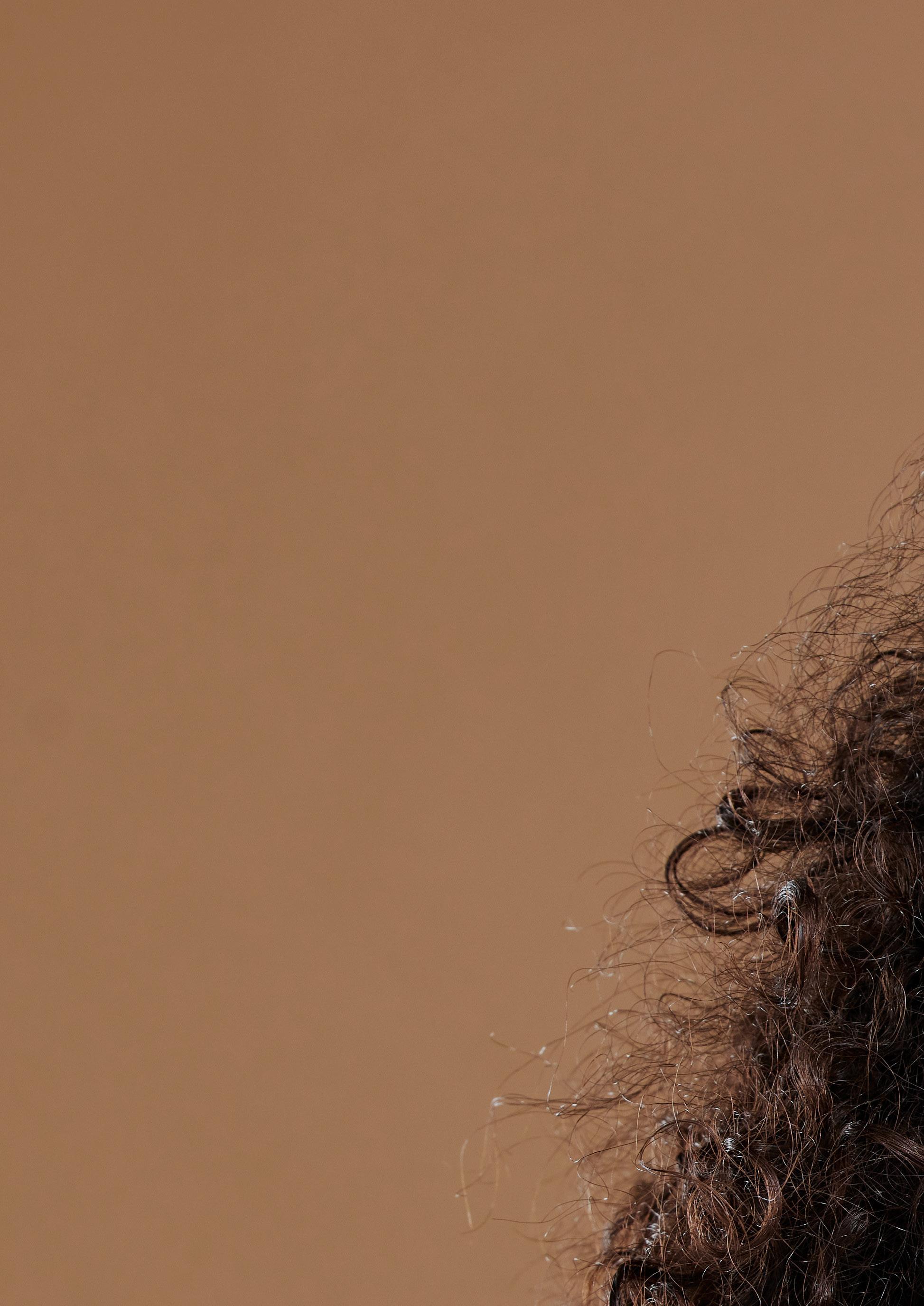
Strands escaped its tight braid, As if a whole other person was sitting beside her, A Peter-pan-shadow, At the crook of her neck.
When I ask the white girl beside me, why it didn’t look like hers, She tells me it’s because mine is frizzy. Her tilted voice so easily made A fact into an insult, mouthing the word with too much teeth, Replacing a full stop with a sympathetic smileLetting me know that at 8-years-old ‘Frizzy’ was equivalent to not good. Was actually the word unsalvageable in disguiseWas Pelo Malo, ratty, broken, and unkept-
It’s no wonder that Frizziness rapidly became a sandpaper-word. Scratching my throat when I swallow it down, Sanding down my insides until I’m nothing but a husk of a brown girlAble to fit a whole other person inside of my bonesAnd so… I do just that.
I let that white girl beside me in. Told her to take off her shoes at the entrance of my mouth, And to make herself at home in the pit of my gut.
46
recites another her hair”
The first time I realised the real reason my hair was different, it was 10 years later. I was looking through family photo albums, And I found a picture of my great grandmother. She had a lopsided smile, full, rounded cheeks And familiar hair escaping its tight braid.
When asked, Mami tells me that she was from the Amazon. With hair like mine, frizzy and untamable, built to withstand humidity, and the colonisers touch. Tells me she gifted me this hair.

There’s a certain power in knowing That your hair has survived genocide. Is the left-over limbs of a soldier who kept walking, Is the medal he brings home, and the engravement on his gravestone, Is evidence of a woman, who refused the idea That she was a beast to be tamed, Or a brown girl to be ashamed.
And so that day, I let that white girl inside of me go. Instead, i decided to let people lose their fingers in this Jungle forest i call hair, and watch as they encounter An amazonian woman stillbreathing in the frizziness of my hair.
Garcia
Arantza
Kathers Anderson
The shouts from my mother had me huddling in my room, Dad’s Nokia 3210 slightly dented after being thrown full pelt at the brick wall. And what was the cause of this? Gambling Addiction. $20,000 disappeared over the course of several months, inserted dollar by dollar into the pokies.
Australia has a gambling problem. There are no ifs or buts about it, and things are only getting worse. The unholy pairing of smartphones and apps have created the single greatest gambling enabler system yet; it has taken over our sportsfrom professional, all the way down to community sports, even under-18s matches.
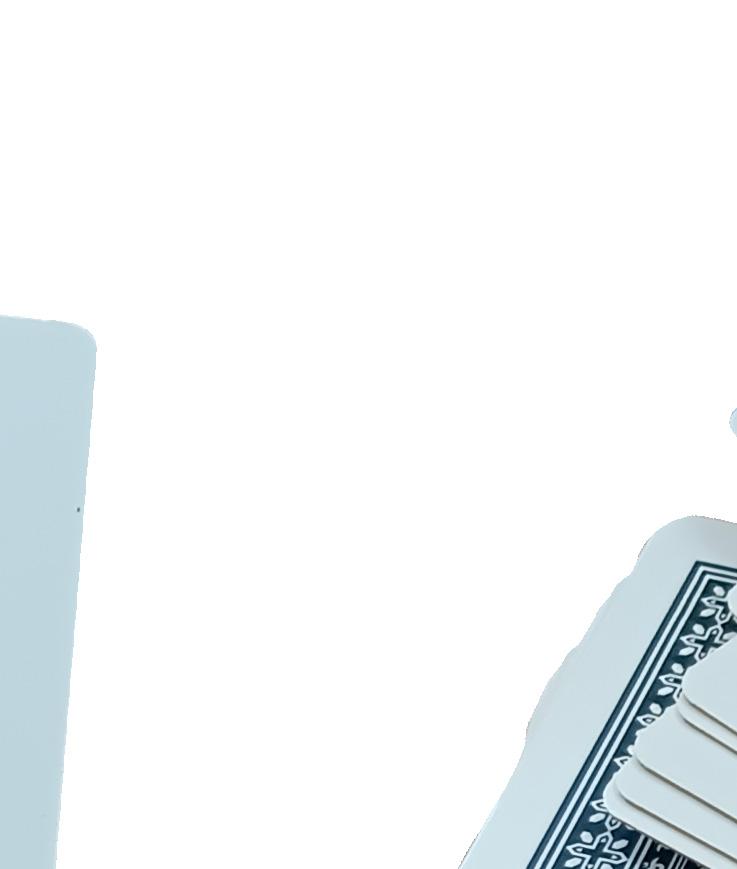

A Four Corners report by Pat McGrath aired in June 2023 called ‘Game, Bet, Match: Gambling with Australian sport’, inspiring me to write this opinion piece. I write with the concern that someone reading this magazine has a gambling addiction and doesn’t know it, or knows people who gamble a bit too much. I write to raise awareness.
Rewind to the AFL Gather Round back in April. I was watching the Collingwood v Saints game with my father, the tickets an early 77th birthday present. Behind us, a group of young men were amusing us with their reactions to the game. But alongside the hilarity, was the troubling knowledge of their gambling. As funny as it was to hear them scream piercingly over a Saints player touching the ball kicked by a particular teammate, degrading it to a behind - it wasn’t funny that they had gambled on that particular player kicking a certain amount of goals and that one accidental touch potentially lost them their money.
I Punt End of

We are losing, as McGrath stated, $20,000,000,000 ($20 billion) a year to gambling. More money lost per person than any other nation.
In his report, McGarth revealed that if you participate in an average community sport, it’s likely that your games are contributing to this addiction. Data scouts feed Sports Radar live updates on the games, while live-streamed games can be directly accessed by the company without the need for human scouts. Even umpires are being caught up in this mess.
Betting on community sports games has also created a rise in game fixing, with sports people in lower grades of competition being more likely to fix their games. Their vulnerabilities are taken advantage of, whether it’s money, ignorance, or youth (vulnerabilities that pro sports people normally don’t have) tarnishing their records or risking their careers for good.
Australians need to act. If the companies behind sports games refuse to remove betting advertisements, and politicians are being slow to react, then clubs and athletes need to act. Lives are being ruined by the gambling on these matches, enabled by gambling apps. I’m not saying you have to quit competing. Instead, ask around, find out if your matches are on gambling websites, speak out about your concerns over this issue, write to your local Member of Parliament, stadium, and professional sports teams on your concerns about the prevalence of gambling in the sports industry; the more awareness, the more likely action will be taken. I’m also at risk - it has come to my attention during the process of writing this piece, that an eSports game I am considering competing in, Super Smash Brothers Ultimate, is also targeted by betting agencies. As such, I will be conducting further research into this matter before I decide on my participation.
48
for the Gambling
Gambling almost tore my family apart - it took my parents a lot of work, counselling, arguments, and tears (not to mention the multiple threats of leaving) to remain together - don’t let it tear yours, or your future relationships apart. That’s a loss, and as Independent Senator David Pocock said in the Four Corners report, Australians are ‘the biggest losers in the world when it comes to gambling’. Please, don’t gamble your loved ones away.
I have the utmost respect for Gen Z for breaking the cycle of drinking and smoking. I implore you to treat gambling the same way, and make it kick the bucket.
If you or anyone you know needs help: Gambling Help Online on 1800 858 858 or visit https://www.problemgambling.sa.gov.au/

National Debt Helpline on 1800 007 007
Lifeline on 13 11 14
MensLine on 1300 78 99 78
You can also apply for self-exclusion or voluntary barring through Consumer and Business Services. Phone 131 882 and select option 6.
REFERENCES
Game, bet, match: Gambling with Australian sport, Game, Bet, Match: Gambling with Australian sport 2023, Four Corners, ABC, Melbourne, 6 June, https://www.abc.net.au/news/2023-06-12/ game,-bet,-match:-gambling-with-australiansport/102470654.
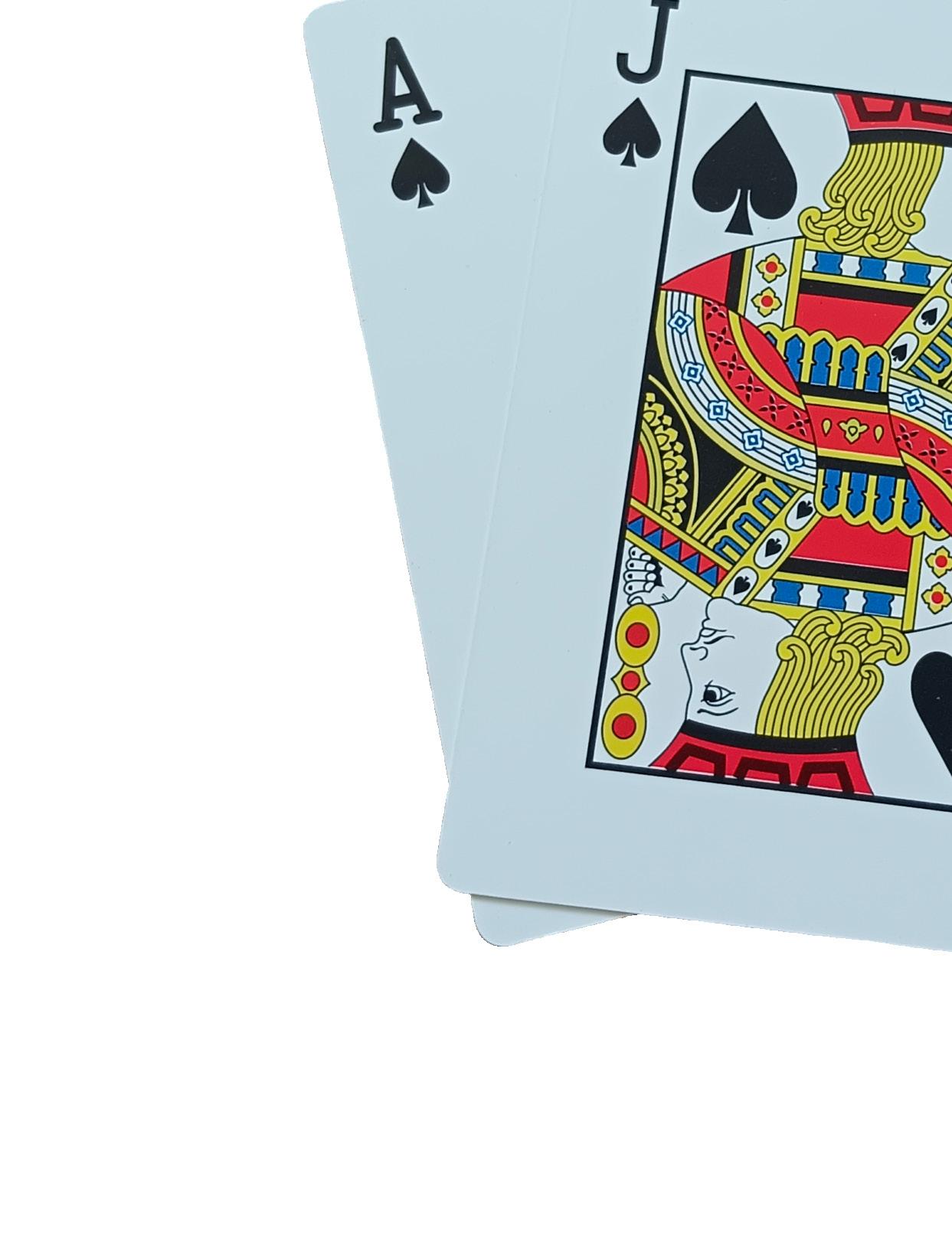
49
Steven Marshall, it’s time to go.
Steven Marshall, it’s time to go.
Before you ask, I’m not the first to write an article arguing this. Paul Starick penned an opinion piece titled ‘Why it’s time for Steven Marshall to quit politics’ for The Advertiser in January. I’ll just include one comment made in his article, that ‘The longer Mr Marshall stays, the more the achievements of his government fade into view, as Labor tries to frame him as a hopeless premier lacking a substantial record’. Perhaps his record as Premier truly was so lacklustre that he is now struggling to find a new job post politics?
In March 2018, Steven Marshall won the South Australian state election for the Liberal Party, ending Labor’s 16-years of governance. First elected in 2010, Marshall became the leader of the parliamentary Liberal Party in 2013 and in 2018, he won the seat of Dunstan (formerly known as Norwood) on his safest margin, of 56.1%. Electoral redistributions in 2020 increased Marshall’s margin to 57.5% as he gained some more Liberal voting areas. He should thank his lucky stars for that redistribution, he’d have lost the seat otherwise. In the 2022 state election, Marshall suffered a 6.9% swing against him in his seat, retaining it by just 260 votes. And I’m sure you need not be reminded, but his government was turfed out, with Labor gaining seven seats off the Liberals.
During his concession speech, Marshall thanked the people of Dunstan for returning him to represent them – but he missed one crucial fact. At the time he said this, he was actually behind in the vote count. He announced that he would step down as Liberal leader, but promised to serve out his four-year term. A week later, he confirmed he wouldn’t serve as a Shadow Minister, telling media: ‘No, I don’t think there’s much point in that at this stage… I’ve got to give the new leadership time [but] I’ll be as supportive as I possibly can. I don’t intend to go on after [the next state election in] 2026, so the best thing is to support the new team as necessary.’ He seems to have an odd idea of the term ‘supportive’…
As of June 1st, Steven Marshall has spoken a miniscule 4,114 words, delivering only five speeches throughout the fifty-four parliamentary sitting days since the election. He hasn’t asked a question in Question Time, but he has twice requested that someone withdraw comments made about him, so there’s an additional 262 words to up his own ego. I’d like to inform you that the base annual salary for a State Member of Parliament is $169,250. Add on the common parliamentary salary of $31,925 that he receives; it is a joke that Marshall is able to earn so much and deliver so little for his electorate. The constituents of Dunstan deserve a representative that will deliver more than just empty words, but tangible outcomes.
50
So, what has warranted Mr Marshall to stand up in parliament, other than for his own self-worth? His first speech after the election was following Vickie Chapman’s valedictory, another was to congratulate Liz Truss on becoming the UK’s Prime Minister (shame he didn’t do a speech on the head of lettuce that outlived her), and his longest – at 1,321 words – was a condolence speech for Her Majesty the Queen. The other two speeches were also commemorative speeches to honour the lives of Bill Spurr AO and Dr Ian Baker Wall AM; neither of whom lived in his electorate. Perhaps it was the fact that Spurr was the Director of the Australian Hotels Association back in the 1980s, an association which donated $619,190 to the Federal Coalition parties back in 2017-2018, that earned him this condolence speech?
Furthermore, Marshall is rarely even seen sitting in Parliament. He either misses the entirety of Question Time (which lasts an hour and is the most watched portion of parliamentary proceedings) or appears for a brief interlude before leaving again. He even allegedly skipped a whole day of Parliament just to attend the Melbourne Cup! As the benefit to the people of Dunstan (or even South Australia for that matter) for this trip would’ve been minimal if any, I am glad this was a self-funded trip, and not at taxpayers’ expense.
I echo Minister Tom Koutsantonis’ words on Twitter on 2 November 2022, that ‘If Steven Marshall doesn’t want to be in Parliament, then he should leave.’ He should make way for someone who will contribute to debates on legislation, ask questions on behalf of the people of Dunstan, and will give the people of Dunstan the common courtesy to rock up to work.
Steven Marshall, it’s been over a year, and it’s time to go.

- Rose
51
The Trash
The small moon, Deimos, orbits around the desert planet Mars. What is little known to astro-adventurers, whether from inter-galactic or inter-universe, was that a native species once occupied its surface.
They’d escaped the detection of passing spacecraft and spying space telescopes through an ingenious idea: camouflage. An idea originally found within nature but utilised for stealth throughout the vast universe. A thin sheet veiled the surface of Deimos, to appear like other asteroids or moons. If one was close enough, they’d notice the shape of Deimos changing. It was no perfect sphere - large bumps changed the surface shape immensely. This wasn’t through meteor impact, but rather by an issue which arose after the construction of the Deimos disguise. What Earthlings assumed was a crater was actually the only city on Deimos, Althzaria, surrounded by trash.
With a fixed amount of breathable atmosphere, rubbish removal became an issue. While the camouflage allowed the light and warmth from the sun to penetrate its folds, any changes to the atmosphere would create a moonwide disaster. This led to the accumulation of topographic mountains of junk, ever rising and changing the moon’s shape. The residents’ insouciant view of the issue bordered on neglect; the place was already a dump, so why bother attempting to clean up? As consecutive ruling bodies failed to address the rising rubbish piles, so too did the seams of the camouflage begin bursting.

52
ofDeimos

A child had finished eating his stick of r’kyyazi and, in the fashion they had learnt, threw it amongst the rubbish formed mountain which now covered Deimos’ entirsurface. As is bound to happen when one teeters on the brink, disaster falls. The stick that was so carelessly thrown was enough to tip the already too-full can, landing on a straining s’keermi net (like the Earthling volleyball net, only far larger) and pulling it down, forcing the rubbish on top to shift with the net.
Two things happened from here. A major trash avalanche descended upon Althzaria, threatening to engulf the city, and one of the rods supporting the cloth of Deimos began to lean, slipping its length along until it chanced upon a seam - an already bursting seam that was more than happy to split open - exposing the surface of Deimos to the abyss above. As the atmosphere poured out the tear, so too did the filth of Deimos. Unfortunately for the people, this halted the avalanche before too many died. The ones who survived had a far more catastrophic death.
Back on planet Earth, an astronomer of fortune witnessed as Deimos shrunk, and shrunk, and shrunk until it was a third of its reported size. In no way were they able to conclude what had happened. “Gary, it was like someone shot it with a shrink ray or something!” was the absurd hypothesis the Earthlings came to. Little would anyone know of the people of Deimos and what happened to them: their stories only whispered within the vacuum of space.
Kathers Anderson
THE IMPORTANCE OF DISRUPTIVE PROTEST
Malinauskas has pushed South Australia in line with Victoria and New South Wales in a worryingly anti-democratic trend which seeks to clamp down on increasing civil disobedience.
The bill, passed in the House of Assembly on 18 May and passed in the Legislative Council on 31 May, has raised the fines for disruptive protest from $750 to $50,000, and has added the potential for 3 months jail time. It intentionally blurs the lines of what constitutes a disruptive protest, and gives the police greater power to arrest protesters that they deem to be disturbing a ‘public place’, such as blocking a road or occupying an intersection.
The bill sped through the lower house less than a day after South Australia hosted the annual Australian Petroleum Production and Exploration Association (APPEA). At the protested conference, SA Minister for Energy and Mining Tom Koutsantonis proclaimed to a room of fossil fuel bosses that South Australia is ‘at your service’.
Liberal Party SA leader David Spears championed the bill, with shockingly bipartisan support from Premier Peter Malinauskas, in the interest of maintaining business as usual and protecting fossil fuel companies. It is a similar story across Australia, as state governments push an offensive against protest, including traditionally unionist Labor governments. This is amidst an ongoing climate crisis and the sharpening cost-of-living crisis.
In making public demonstration an offence, these laws not only make protest more difficult, but are a direct attack on democratic rights. They undermine union strike actions, removing workers’ ability to exercise their industrial muscle to win better wages and working conditions. In order to put any real pressure on the bosses and the State to win concessions, they must disrupt the flow of profits and halt business as usual.
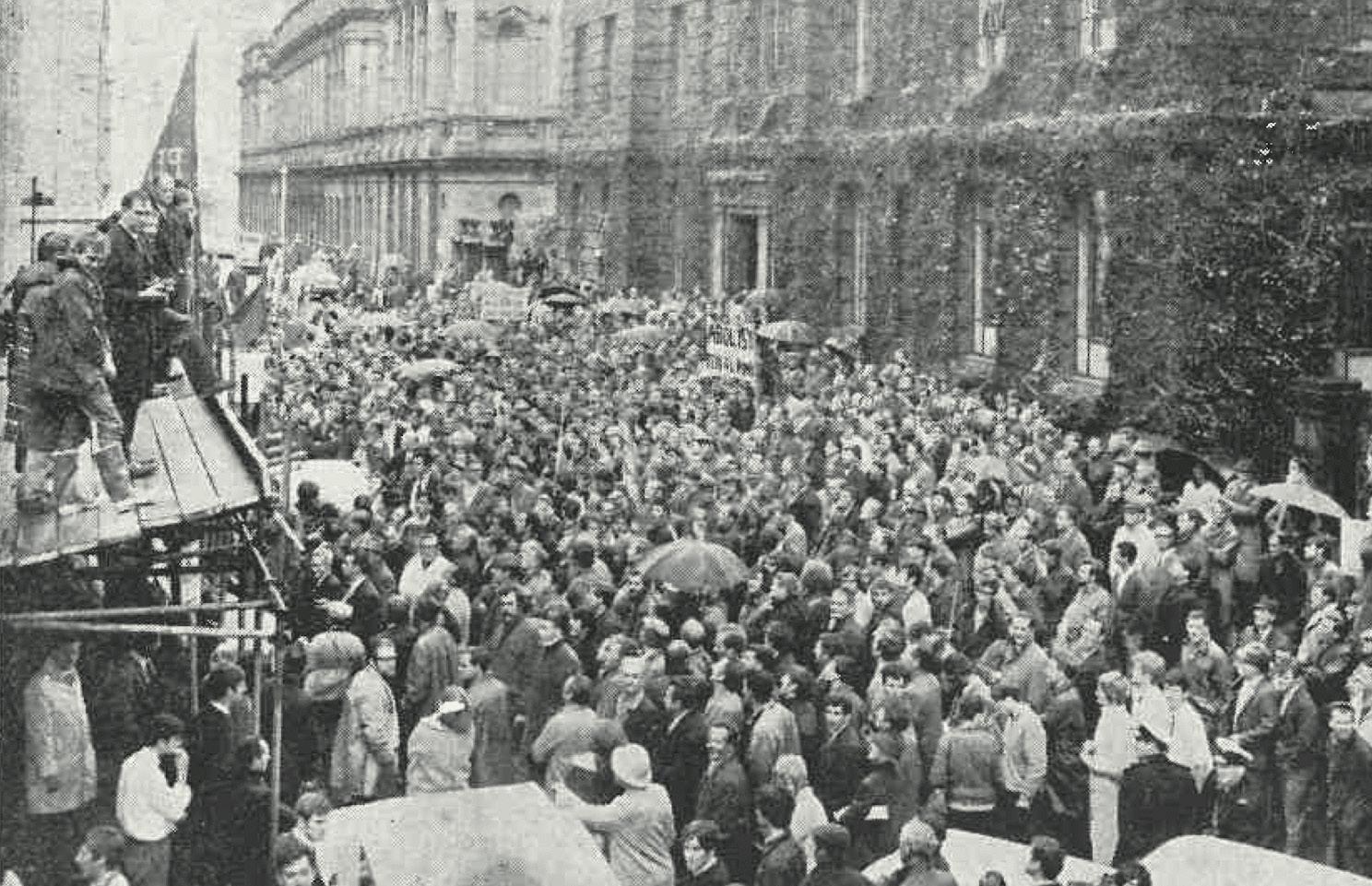
Progress isn’t occurring in the way we’ve always been told. There is no slow march towards a perfect world, instead we seem to be marching backward. Rights that were hard fought for are being reversed, from Roe v Wade in the US to
the ability to seek asylum in the UK. Where people fight, change is won. Through disruption of business as usual, concessions are wrested from the hands of the ruling class and the real power in society, the power of collective action, is revealed. But collective action is under attack.
WorkersouttosupportClarrieO’Shea outside Victorian Trades Hall amidst oneofthe24hrstoppages
The power of ordinary people to resist and fight, has consistently been undermined by the State. South Australians won the right to protest during the anti-Vietnam War movement, at a demonstration that occupied the intersection of North Terrace and King William St. All progressive change we have made in society has been driven by disruptive protest.
The Clarrie O’Shea strikes are a high point of Australian militant working class history, setting the standard for fighting against repressive state laws. The Menzies government created the Penal Powers, introducing penalties against unions taking industrial action. Using these powers, anti-democratic fines were flung at ‘disruptive’ striking unions. Militant unions fought this, notably the infamous Tramways Union with Clarrie O’Shea at the helm. When O’Shea was jailed for refusing to show the industrial courts the Union’s bank account, over 50,000 workers went on strike across Victoria in two 24-hour stoppages, with mass protests outside the courthouse where O’SHea was held. He was released soon after, when a donor paid the fines, but the legitimacy of the laws was damaged. The laws used to jail O’Shea have never been repealed, but were made unenforceable by the outcry and mass action against them.
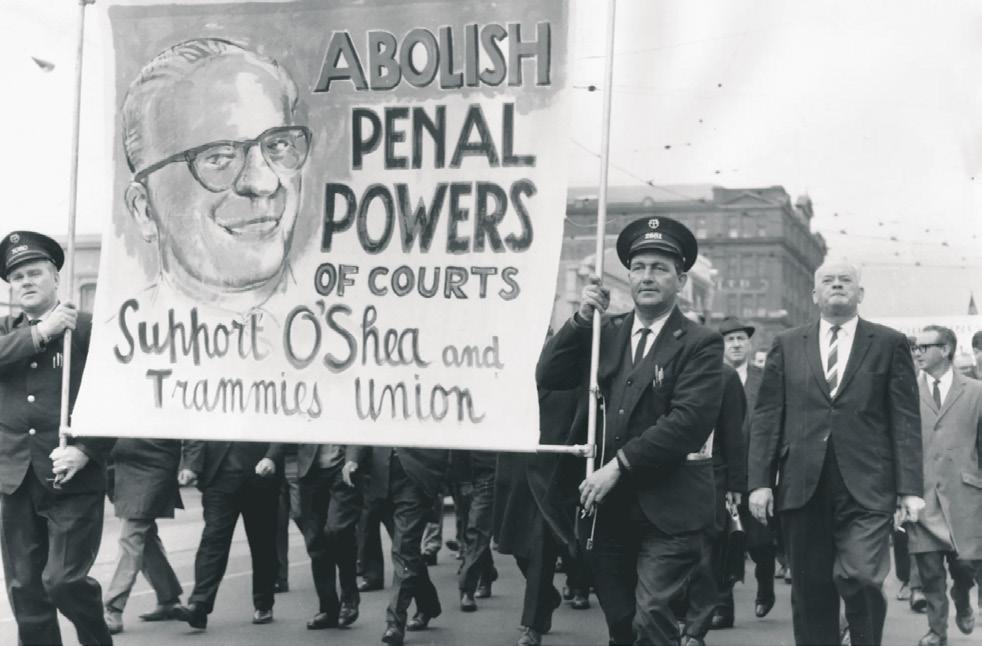
The farce of democracy under capitalism is brought into sharp focus in moments like these, where trust in the process must be thrown out, and ordinary people must use their power to change society.
These laws won’t be changed through polite politics; both Malinauskas and other state governments protect the interests of the fossil fuel industry. Being polite and respectable only preserves their legitimacy to act against our interests.To put up a fight, we need to build the traditions of mass movements that have the power to challenge the injustices inherent to capitalism. No government would dare pass laws like this in the midst of a mass movement like the School Strikes for Climate of 2018/2019 or the Black Lives Matter movement in 2020.
To render undemocratic laws unusable and do away with the system that relies on them, we need the politics of mass struggle.The future is a contested space where the seemingly infallible system of capitalism can be brought to its knees, but this doesn’t happen easily. We need to exercise our power wherever we can, from small protests or a union drive at work, to mass movements and general strikes. At the time of writing this, the laws are still in place, but history has shown that unjust laws are defeated by breaking them.
 Ellie Hall
Clarrie O’Shea strikes
Black Lives Matter in Adelaide, 2020
Ellie Hall
Clarrie O’Shea strikes
Black Lives Matter in Adelaide, 2020
55
State of Origin 1:
Well, it’s officially winter and that can only mean one thing: it’s the time of year for Australia’s greatest sporting contest: State of Origin. For the first time since 2020, the Queensland Maroons and the New South Wales Blues came to the picturesque Adelaide Oval on May 31st to begin the 42nd State of Origin series. Before I talk about this year’s cracker of a game, I’d like to refresh people’s memories about State of Origin’s history in South Australia.
It was the year 2020, Covid was rampaging across Australia and major sporting codes were playing shortened seasons in front of empty stadiums. State of Origin, usually played in June-July during the NRL’s regular season, had been postponed to November, in an attempt to get it in front of a crowd. Adelaide hosted the first game of the series, in front of 50% capacity crowd of 25,218, of which I was lucky to be a part. The plucky Maroons, referred to at the time as the “worst Queensland side in history” won the game 18-14 and the series 2-1.
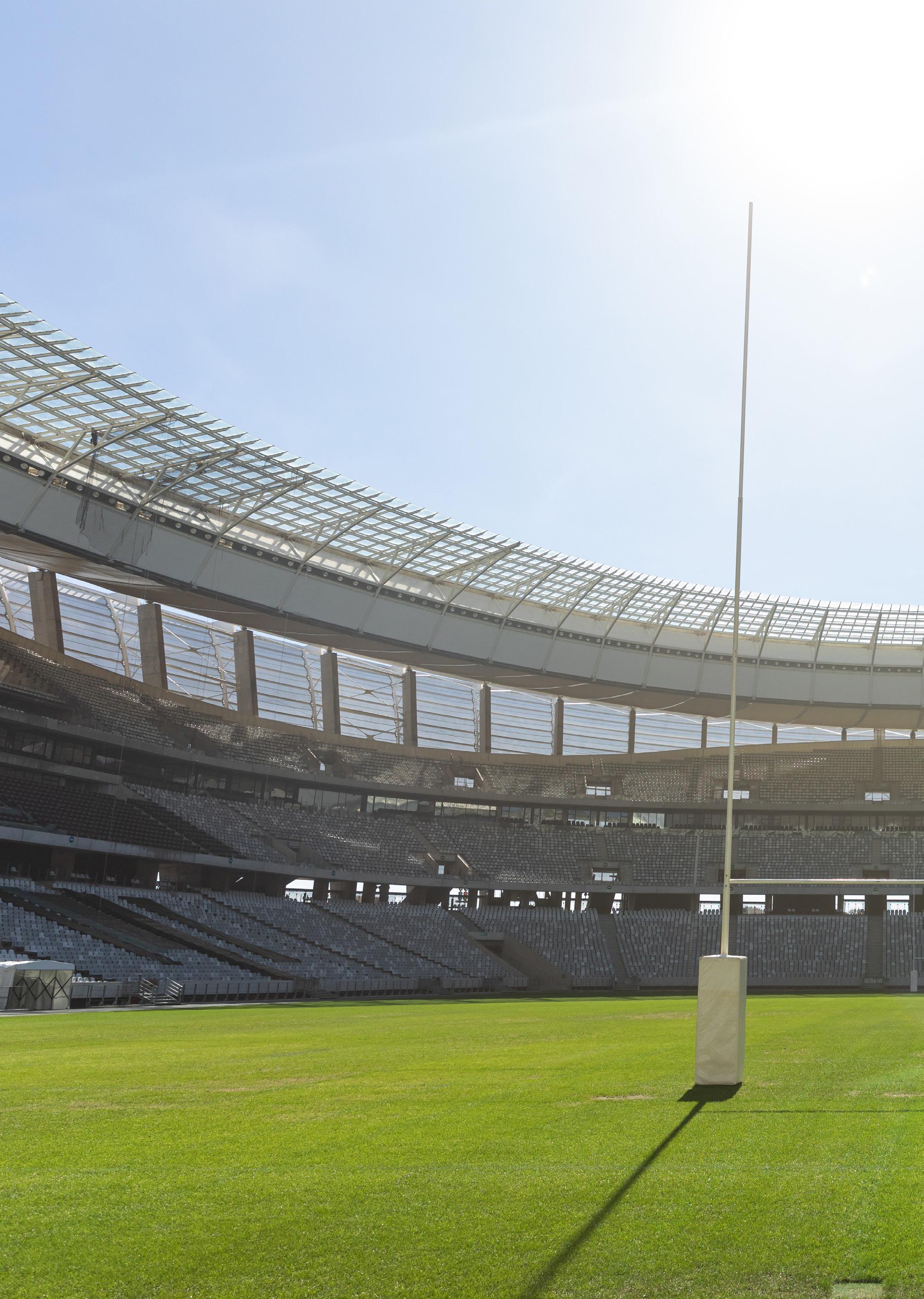
But that was three years ago and once again the Origin Shield is back up for grabs. With Covid restrictions gone, a crowd of 48,613 packed into Adelaide Oval. Before the game The Living End came out and reminded us they still exist, getting the crowd fired up with their hit song ‘White Noise’. After that, we settled into to watch the main event. There was plenty of heart in the contest, as multiple fights (or ‘biffos’ as any passionate Rugby League fan calls them) broke out in the opening ten minutes. It was at this point that my voice went after I spent two minutes screaming at the referee to send off a New South Wales player.
Queensland opened the scoring in the seventh minute, with fiveeighth Cameron Munster putting in a beautiful grubber kick to send Hamiso Tabuai-Fidow (the Hammer to his legion of fans) over. Queensland centre and my personal hero Valentine Holmes converted the try to give Queensland a 6-nil lead. Three minutes later Selwyn Cobbo scored in the corner to increase the Maroons’ lead to 10-nil. New South Wales responded towards the end of the half, Liam Martin breaking through the Queensland defence, and Nathan Cleary converting to make the scores 10-6 at half-time.
A Match Review
The second half started poorly for the Maroons, as poor ball-handling saw them turn over possession and the Blues’ Apisai Koroisau score under the posts. Cleary converted and suddenly New South Wales had a 12-10 lead. This lead lasted a very tense twenty minutes before Selwyn Cobbo got a clean break down the sideline, sliding over to give Queensland back the lead. New South Wales responded however, with Stephen Crichton (or ‘Diet Latrell’ as I call him, due to him being called up last minute as injury cover for the much superior Latrell Mitchell) scoring.
At this stage the scores were 18-16 New South Wales’s way, although in true Queensland spirit the Maroons fought back. In the sixty-sixth minute, the Hammer went on the run of a lifetime down the sideline, skirting with the line but staying in and beating the defenders to put Queensland back in front. Queensland’s slender lead turned into an unassailable margin minutes later, when prop forward Lindsay Collins took a flying catch and offloaded to Munster, who went over to give Queensland an eight-point lead. The Maroons hung on to seal the 26-18 win and a 1-nil lead in the series.
For the Maroons fans there was jubilation and for the Blues fans there was probably a very long and disappointing flight home the next day, but in all the crowd were treated to a brilliant game of State of Origin football that many will remember for a long time.

Aden Hill
57
Little Bitch in the Big City
Sienna Sulicich
This piece was first published in July last year, on onditmagazine.com! Check out the website to see exclusive stories. I want to thank the beautiful person that inspired me to publish this in print, your kind words warmed my heart.
Moving to Adelaide was not fun. I knew close to no-one and initially spent most of my time locked in my room, wallowing in my own selfpity. The city is actually rather bleak and kind of ugly, not really the soul-inspiring stuff I’d imagined. To be fair, I never really enjoyed my home-town either. The bush is a strange place, full of conservative cowboys who want to knock you up by nineteen and hold you hostage, washing their lead-soaked jocks for the rest of your life. Maybe it’s not all that bad, but I definitely didn’t feel like I fit in with my platform sneakers and candy-pink hair. I never realised how lucky I was growing up in the bush until I moved to the city, and then I finally missed it. I mourned my home-town like a widow. The smell, the culture, the familiar faces, all washed away. Yeah there were drugs and thugs and drama, but it looked a bit maternal if you squinted hard enough and drank just enough liquor to warm your heart.
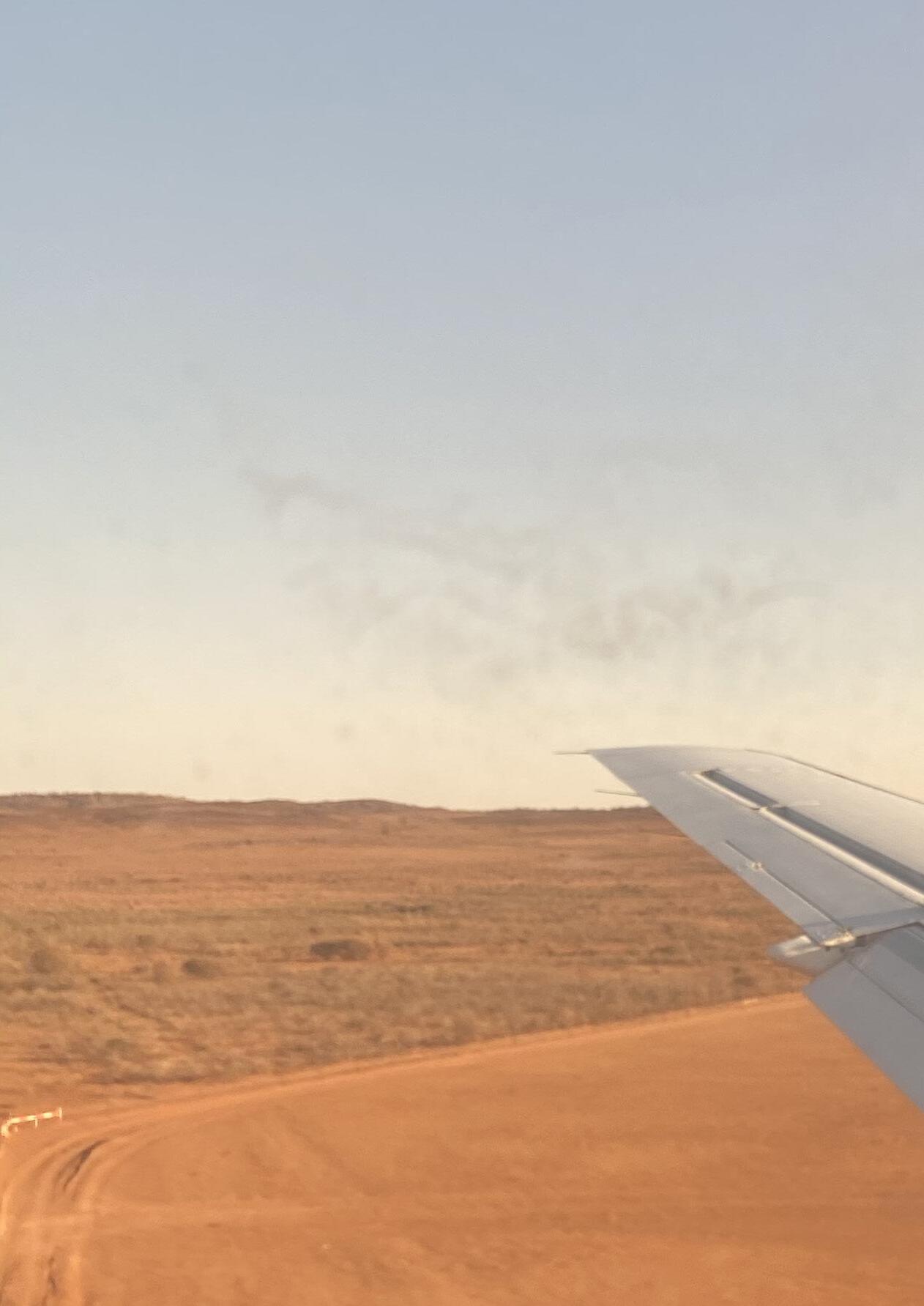
My first day at university was confronting. It’s not like I’d never seen a television before, I had just never seen that many in the one room. At first I was in awe.It was so amazing that we had access to all this technology. I didn’t even have to turn my head to look to the front. Every room had enough chairs and desks for each person, and then some (my high school didn’t, sometimes people had to sit on the floor or on semi-broken tables stuck together with ancient gum). Awe turned to anger when I started to meet people. Why were these kids so strange? Why does it matter what high school I went to? Suburb? What the fuck is a suburb? I live in a house?
There were no private schools back home, just two high schools (which is actually a lot considering the population). Most kids ended up attending both schools anyway, because we didn’t have enough staff to hold senior classes like chemistry or software engineering at both of the high schools. You would have to haul ass in-between schools, or show up at ungodly hours before school started to take a class off-timetable. The teachers were pretty decent, there just weren’t enough of them. It was a weird mix of elderly teachers who taught my parents, or first year university graduates sent out from the city with a pocket full of government cash to sweeten the deal. If a teacher was sick, well, that was it. We had a couple substitutes for younger years while seniors just made do (which usually resulted in my mouthy ass being forced to play teacher). There were no real SSO’s either — support staff to assist — so confident kids helped out instead. I graduated with about a dozen kids who were not fully literate. When seniors would do their final year exams, I remember going to their exams with them to read out the questions and scribe their answers down as they spoke them to me. They slipped through the cracks, and there were not enough of us who could help them all. I could handle using a maths textbook from the 80’s that had hundreds of dicks in it, but I couldn’t handle seeing that.
So walking into a room full of televisions made me very pissed off. It’s not fair that I’m here and all those other kids back home are not — kids that will struggle to read their own children a bedtime story in the future.
58
My anger simmered, but I choked down my guilt and tried my best to make it through my first semester reasonably unscathed. Until I was in a philosophy class (which I absolutely loathed) and we were discussing the importance of education. A random dude said ‘well, yeah education is important but it’s pretty much equal across Australia so it doesn’t matter as much here’. I saw red. I had to fight tooth and nail to get here, let alone the kids back home who had no chance whatsoever to go to university, and here we were discussing the politics of education in a room full of private school kids who’ve never really lived a day in their life? Maybe I was a bit harsh, and I still am, but fuck it breaks my heart every time to see such blatant ignorance. So, I calmed my ass down and explained how we grew up. He said he didn’t believe me. I don’t know why he would think I would lie to him about something like that. I think maybe private school kids are often trying to one-up each other with first-world-problem sob stories to validate their interest in humanities (just a theory).
I’ve snapped only a handful of times, and each time I felt more and more alienated by the institution I so gleefully signed up for. As a humanities and arts student, we do discuss a lot of issues in classes which are obviously very important. Sometimes though, it just feels like a bunch of middle class, white city kids talking about other people’s problems; race, poverty, unionism, access to education, access to healthcare. Again, maybe I’m just cynical, but sitting in a room full of white private school kids chanting about race relations and poverty, sucking each other off for being so caring and forward-thinking, feels fucking gross. I’m not blaming the university, or the students — these issues need to be talked about. It just seems so unfruitful, and they convince themselves that’s enough (you’re not starting a revolution Jessica, you’re preaching class consciousness and socialism to a room full of greenies).
You city folk ain’t all bad. There are some beautiful, genuine people I’ve met in Adelaide that manage to warm my cold, cynical soul (truly a hard task). Just smile a bit more, or even say hello when you cross the street. Think about why you’re at university, what do you want to achieve? I’m not sure what I want to achieve, but I would love to help someone, who never thought they would make it here, feel a little less alone. Talking in white, academic circles is not enough. I want to fight for something.

59
Sens Big Quiz
1. How many Disney princesses are left handed?
2. How many Build-a-Bear stores are in Adelaide?
3. On what main road does the Scotty’s Motel reside?
4. In which century was Coca-Cola invented?
5. How many syllables are in the word apparition?
6. What species is the largest of all monkeys?
7. What is contentiously pictured on the flag of Mozambique?
8. What musical won Best Musical at the 2023 Tony Awards?
9. In what year did A.A. Milne’s Winnie-the-pooh enter the public domain?
10. What are the magic words Zelda character Tingle made up?
11. What is the most commonly used term for grandmother in Greek?
12. In what century was the Bubonic Plague?
13. What type of gymnastics involves the apparatuses of beam, uneven bars, vault and floor?
14. What zodiac sign is depicted as a container for water?
15. What is the name of Lilo’s sister in Disney’s Lilo and Stitch?
16. Who won the 2023 State of Origin series?
17. Who is the director of the new live-action Barbie movie?
18. Foxtrot, November, Delta and Victor are all letters of what alphabet?
19. What actor will be returning to play the Doctor in Doctor Who this year?
20. Smash or Pass: Derek from Barbie in the Twelve Dancing Princesses?
60
YouX NOTICE OF 2023 ELECTION
POLLING DATES:
Monday 28th August 2023 to Friday 1st September 2023
NOMINATIONS:
Open at 9.00am on Monday 7th August 2023 and close strictly at 4.00pm on Friday 11th August 2023
Well, it’s officially winter and that can only mean one thing: it’s the time of year for Australia’s greatest sporting contest: State of Origin. For the first time since 2020, the Queensland Maroons and the New South Wales Blues came to the picturesque Adelaide Oval on May 31st to begin the 42nd State of Origin series. Before I talk about this year’s cracker of a game, I’d like to refresh people’s memories about State of Origin’s history in South Australia.
POSITIONS AVAILABLE FOR ELECTION:
It was the year 2020, Covid was rampaging across Australia and major sporting codes were playing shortened seasons in front of empty stadiums. State of Origin, usually played in June-July during the NRL’s regular season, had been postponed to November, in an attempt to get it in front of a crowd. Adelaide hosted the first game of the series, in front of 50% capacity crowd of 25,218, of which I was lucky to be a part. The plucky Maroons, referred to at the time as the “worst Queensland side in history” won the game 18-14 and the series 2-1.
GENERAL MEMBER OF THE YouX BOARD (5 positions; each elected for a term of two (2) years)the YouX Board is the governing body of YouX and is responsible for managing its affairs. YouX provides funding for activities, events and services on campus, as well as providing support and assistance to affiliated student organisations. The Board meets monthly and has various sub-committees in which Board members are expected to participate.
TO NOMINATE AS A CANDIDATE:
1. Only students currently enrolled at the University of Adelaide who are financial members of YouX may nominate. Members must be over the age of 18 years, able to hold a liquor licence and be legally able to hold the position of a director of an incorporated association.
But that was three years ago and once again the Origin Shield is back up for grabs. With Covid restrictions gone, a crowd of 48,613 packed into Adelaide Oval. Before the game The Living End came out and reminded us they still exist, getting the crowd fired up with their hit song ‘White Noise’. After that, we settled into to watch the main event. There was plenty of heart in the contest, as multiple fights (or ‘biffos’ as any passionate Rugby League fan calls them) broke out in the opening ten minutes. It was at this point that my voice went after I spent two minutes screaming at the referee to send off a New South Wales player.
2. Nomination forms must be completed and submitted online at https://youx.org.au/voice/elections/2023/ or, where a candidate is unable to submit online, by contacting the Returning Officer at email returningofficer@adelaide.edu.au.
3. A policy statement and photograph can be submitted, if desired, at the time of nomination at https:// youx.org.au/voice/elections/2023/.
• Policy statements must not exceed 200 words including the candidate’s name and the position for which they are standing; any words over 200 will not be published.
• No policy statements or photographs will be accepted after close of nominations.
Queensland opened the scoring in the seventh minute, with five-eighth Cameron Munster putting in a beautiful grubber kick to send Hamiso Tabuai-Fidow (the Hammer to his legion of fans) over. Queensland centre and my personal hero Valentine Holmes converted the try to give Queensland a 6-nil lead. Three minutes later Selwyn Cobbo scored in the corner to increase the Maroons’ lead to 10-nil. New South Wales responded towards the end of the half, Liam Martin breaking through the Queensland defence, and Nathan Cleary converting to make the scores 10-6 at half-time.
• If you are unable to submit your policy statement or photograph as above, please contact the Returning Officer at returningofficer@adelaide.edu.au. to arrange an alternative method of submission.
4. All YouX Board candidates will be required to attend an information session, to be held before the elections, outlining the responsibilities of a Director and the structure of the organisation.
The second half started poorly for the Maroons, as poor ball-handling saw them turn over possession and the Blues’ Apisai Koroisau score under the posts. Cleary converted and suddenly New South Wales had a 12-10 lead. This lead lasted a very tense twenty minutes before Selwyn Cobbo got a clean break down the sideline, sliding over to give Queensland back the lead. New South Wales responded however, with Stephen Crichton (or ‘Diet Latrell’ as I call him, due to him being called up last minute as injury cover for the much superior Latrell Mitchell) scoring.
NOMINATIONS RECEIVED AFTER THE CLOSE OF NOMINATIONS WILL NOT BE ACCEPTED
QUERIES: Any questions concerning the Election should be directed to the Returning Officer via returningofficer@adelaide.edu.au.
Published and authorised by the Returning Officer, July 2023. Please recycle.
At this stage the scores were 18-16 New South Wales’s way, although in true Queensland spirit the Maroons fought back. In the sixty-sixth minute, the Hammer went on the run of a lifetime down the sideline, skirting with the line but staying in and beating the defenders to put Queensland back in front. Queensland’s slender lead turned into an unassailable margin minutes later, when prop forward Lindsay Collins took a flying catch and offloaded to Munster, who went over to give Queensland an eight-point lead. The Maroons hung on to seal the 26-18 win and a 1-nil lead in the series.
For the Maroons fans there was jubilation and for the Blues fans there was probably a very long and disappointing flight home the next day, but in all the crowd were treated to a brilliant game of State of Origin football that many will remember for a long time.
Aden Hill
STUDENT REPRESENTATIVE COUNCIL & NATIONAL UNION OF STUDENTS NOTICE OF 2023 ELECTION
POLLING DATES:
Monday 28th August to Friday 1st September 2023
NOMINATIONS:
Open at 9.00am on Monday 7th August 2023 and close strictly at 4.00pm on Friday 11th August 2023
POSITIONS AVAILABLE FOR ELECTION
STUDENT REPRESENTATIVE COUNCIL:
SRC PRESIDENT (1 position) – responsible for the overall co-ordination and leadership of the SRC and as chief spokesperson for the SRC.
GENERAL SECRETARY (1 position) – responsible for calling meetings, taking minutes and general administrative roles.
EDUCATION OFFICER (1 position) – Acts to highlight issues relating to student’s education and other academic concerns.
WELFARE OFFICER (1 position) – Acts to promote the welfare of all students and to promote and strengthen support for students.
WOMEN’S OFFICER (1 position) – Acts as an advocate for women’s interests, a co-ordinator of women’s action on campus. To be eligible to nominate for this position candidates must identify as a woman.
QUEER OFFICER (1 position) – Acts to advocate on behalf of queer students, to promote and strengthen the rights of queer students on campus and to combat discrimination at university and the wider community. To be eligible to nominate for this position candidates must identify as queer.
INTERNATIONAL STUDENT OFFICER (1 position) – Advocates on behalf of students enrolled as international students at the University of Adelaide, and to promote equality and opportunities for international students. To be eligible to nominate for this position candidates must be enrolled as an international student at the University of Adelaide.
POSTGRADUATE OFFICER (Higher Degree by Research) (1 position) – Acts to advocate on behalf of postgraduate students (Higher Degree of Research) of the University of Adelaide. To be eligible to nominate for this position candidates must be enrolled in postgraduate (Higher Degree by Research) study at the University of Adelaide.
POSTGRADUATE OFFICER (Coursework) (1 position) – Acts to advocate on behalf of postgraduate students (Coursework) of the University of Adelaide. To be eligible to nominate for this position candidates must be currently undertaking postgraduate (Coursework) study at the University of Adelaide.
ETHNO-CULTURAL OFFICER (1 position) – Acts to advocate on behalf of students with a cultural or linguistically diverse background. To be eligible to nominate for this position candidates must identify as having a linguistically or culturally diverse background.
ATSI OFFICER (1 position) – Acts to advocate on behalf of students who identify as Aboriginal or Torres Strait Islander. To be eligible to nominate for this position candidates must identify as being Aboriginal or Torres Strait Islander.
ENVIRONMENT OFFICER (1 position) – Acts to advocate for environmental sustainability within the university and broader community. SOCIAL JUSTICE OFFICER (1 position) – Acts to highlight issues relating to social justice.
MATURE AGE OFFICER (1 position) - Acts to advocate on behalf of Mature Aged students. To be eligible to nominate for this position candidates must be over the age of 25.
DISABILITY OFFICER (1 position) – Acts on behalf of students with a disability on campus. To be eligible to nominate for this position candidates must identify as having a disability, mental illness or chronic illness.
RURAL OFFICER (1 position) – Acts to advocate on behalf of rural and regional students. To be eligible to nominate for this position candidates must have must lived in a regional or remote area, or have moved from a regional remote area, within the last three (3) years and within six (6) months of commencing their studies at Adelaide University.
WAITE CAMPUS OFFICER (1 position) Acts as an advocate for students studying at Waite Campus. To be eligible for this position candidates must be studying at least one subject at the university’s Waite Campus.
ROSEWORTHY CAMPUS OFFICER (1 position) Acts as an advocate for students studying at Roseworthy Campus. To be eligible for the position candidates must be studying at least one subject at the university’s Roseworthy Campus.
GENERAL COUNCILLOR (8 positions) – Acts as an advocate for all students, assists office bearers in the fulfilment of their functions.
NATIONAL UNION OF STUDENTS:
NUS DELEGATE (7 positions) - the National Union of Students is the body that is charged with the responsibility of representing student interests. Delegates will be invited to attend State and National conferences of NUS and are expected to contribute to the development of policy and action at a State and National level.
TO NOMINATE AS A CANDIDATE:
1. Only students currently enrolled at the University of Adelaide who are financial members of YouX may nominate.
2. Nomination forms must be completed and submitted online at https://youx.org.au/voice/elections/2023/ or, where a candidate is unable to submit online, by contacting the Returning Officer at email returningofficer@adelaide.edu.au.
3. A policy statement and photograph can be submitted, if desired, at the time of nomination at https:// youx.org.au/voice/elections/2023/ .
• Policy statements must not exceed 200 words including the candidate’s name and the position for which they are standing; any words over 200 will not be published.
• No policy statements or photographs will be accepted after close of nominations.
• If you are unable to submit your policy statement or photograph as above, please contact the Returning Officer at returningofficer@adelaide.edu.au to arrange an alternative method of submission.
4. All SRC and NUS candidates will be required to attend an information session, to be held before the elections, outlining candidate election campaign responsibilities.
NOMINATIONS RECEIVED AFTER THE CLOSE OF NOMINATIONS WILL NOT BE ACCEPTED
QUERIES: Any questions concerning the Election should be directed to the Returning Officer via returningofficer@adelaide.edu.au. Published and authorised by the Returning Officer, July 2023. Please
Recycle
Craftcorner
 Rhiannon Firstbrook
Rhiannon Firstbrook
After my success with knitting, I set out to try crochet. Some of you may associate crochet with blankets and granny squares, I did too. However, further research presented me with numerous options that crochet has to offer, which led me to the art of Amigurumi.
Amigurumi is a Japanese form of crochet that involves creating 3D items which sounded like a fun segue into crochet. I hereby present to you my craft corner special: I tried Amigurumi so you don’t have to.
Amigurimi with Rhi: Crochet Bee
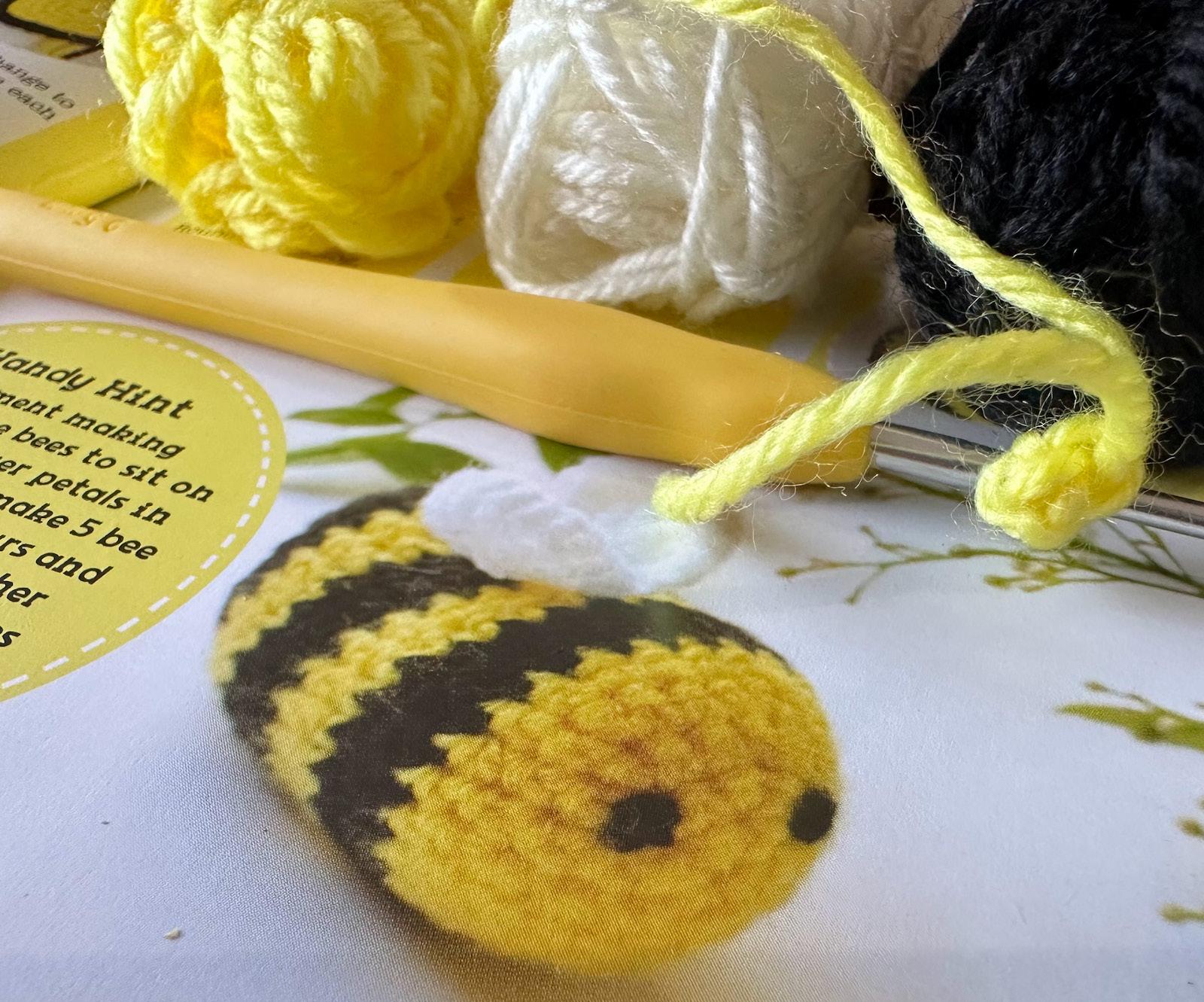 Bee
Bee
of my Dreams
My adventure began with an Amigurumi kit. The instructions were for a teeny tiny bee, which immediately took my fancy. The kit arrived and I confidently endeavored to create the crochet bee of my dreams. I should have known from my knitting experience that starting with a dainty project is a lot harder. Nonetheless, I persevered and completed a questionable looking bee with eyes that my partner declared as “staring into their soul”.
I have never been one to take the easy road and apparently enjoy punishing myself with new hobbies. However, further research confirmed my theory; thicker yarn with a larger crochet hook is ideal for beginners. So, with this knowledge in hand, I recreated another one with bee-ginner friendly materials, and had bee-utiful success! Unfortunately, I forgot to purchase safety eyes, leading me to once again learn that I have no skills in embroidering facial features.
Amigurumi has been a fantastic de-stress hobby, but please learn from my mistakes. If you want to try Amigurumi, learn the basic stitches from YouTube or a kit and then have a go at a bee of your own!
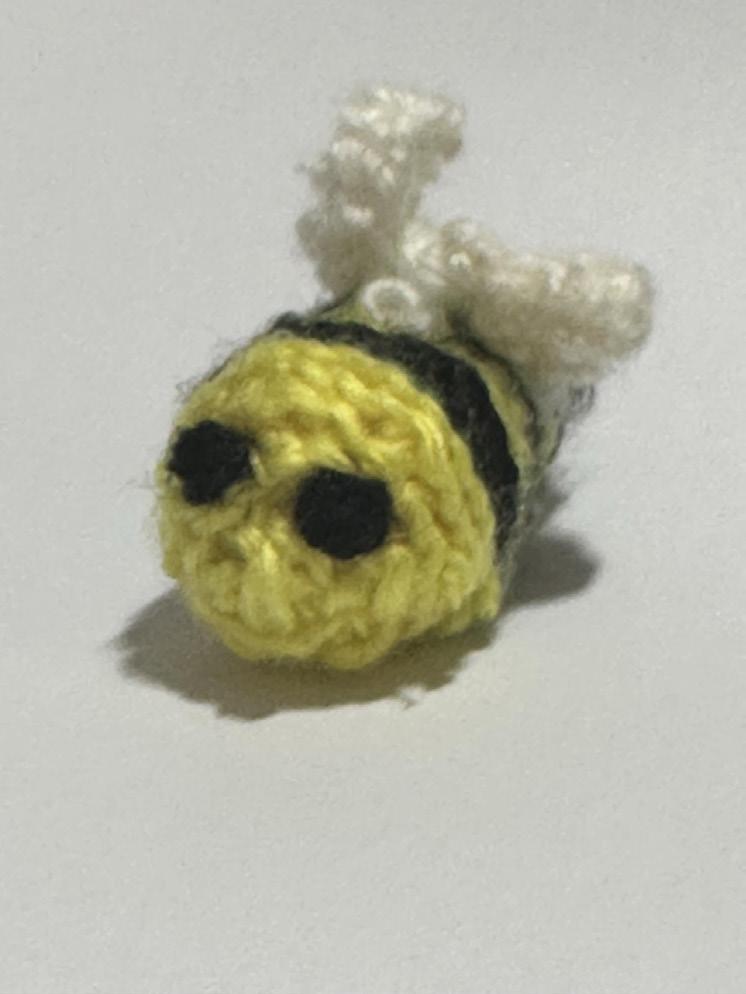

This pattern also has a video tutorial!


Reality. SUccess!
Quiz Answers
1. 2 (Tiana and Mulan)
2. 2 (TTP and Marion)
3. Main North Road (corner of Nottage Terrace)
4. 19th Century
5. 4
6. Mandrill
7. AK-47 assault rifle
8. Kimberly Akimbo
9. 2022
10. Tingle, Tingle! KoolooLimpah!
11. Yiayia
12. 14th Century
13. Artistic
14. Aquarius
15. Nani
16. Queensland
17. Greta Gerwig
18. NATO phonetic alphabet
19. David Tennant
20. Smash
SUBMIT YOUR WORK NOW UOFA’S STUDENT MAGAZINE onditmagazine .c o m .au
onditmag@gmail.com @onditmag @onditmagazine @onditmagazine


YouX Student Employment offer personalised support, discounted short courses, and a free jobs board to help you find a part-time or casual job while you study. Visit youx.org.au/employment or speak with us on (08) 8313 4406 for advice and support. youx.org.au/employment


Enhance your uni experience. Get access to on and off-campus discounts, exclusive competitions, giveaways, free Member Lunches and event perks. Join online youx.org.au/join or at YouX HQ on Level 4, Hub Central. youx.org.au/join
































































 Ellie Hall
Clarrie O’Shea strikes
Black Lives Matter in Adelaide, 2020
Ellie Hall
Clarrie O’Shea strikes
Black Lives Matter in Adelaide, 2020




 Bee
Bee







